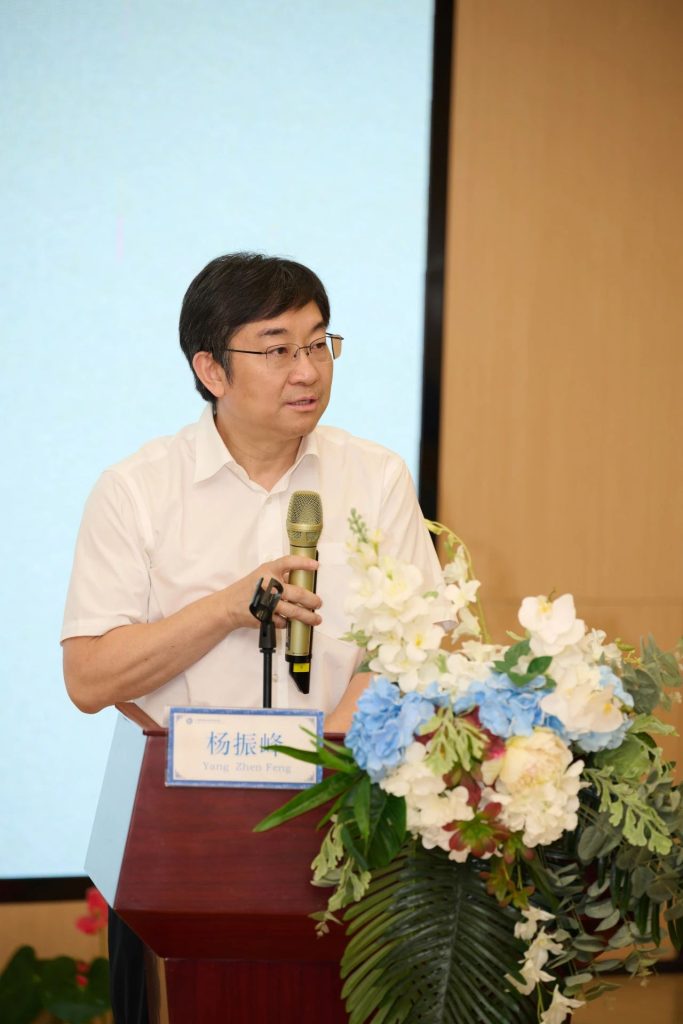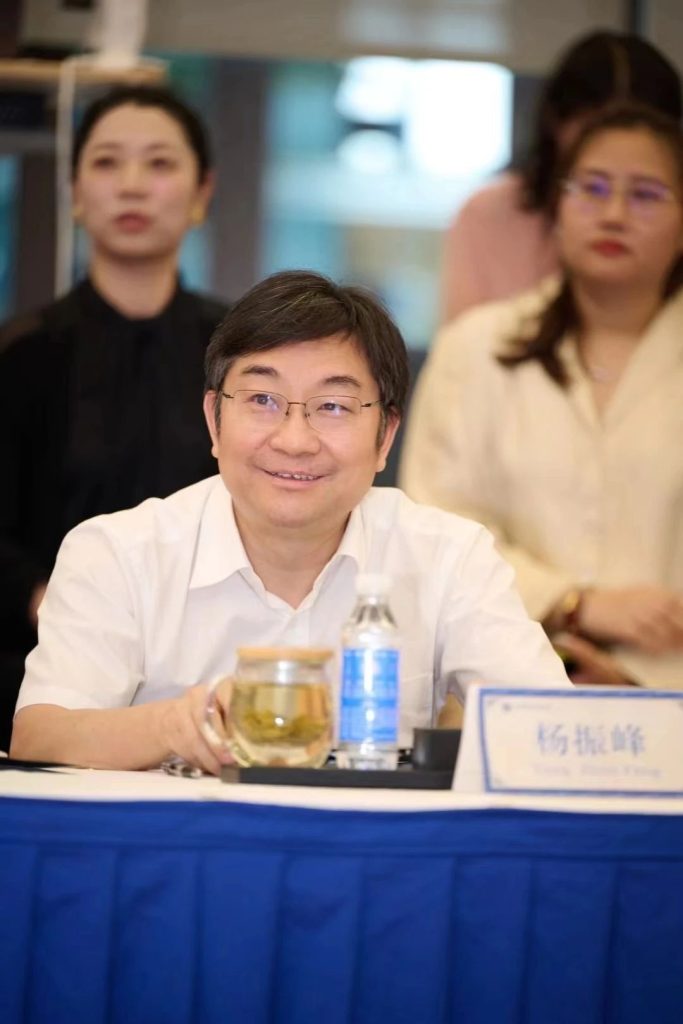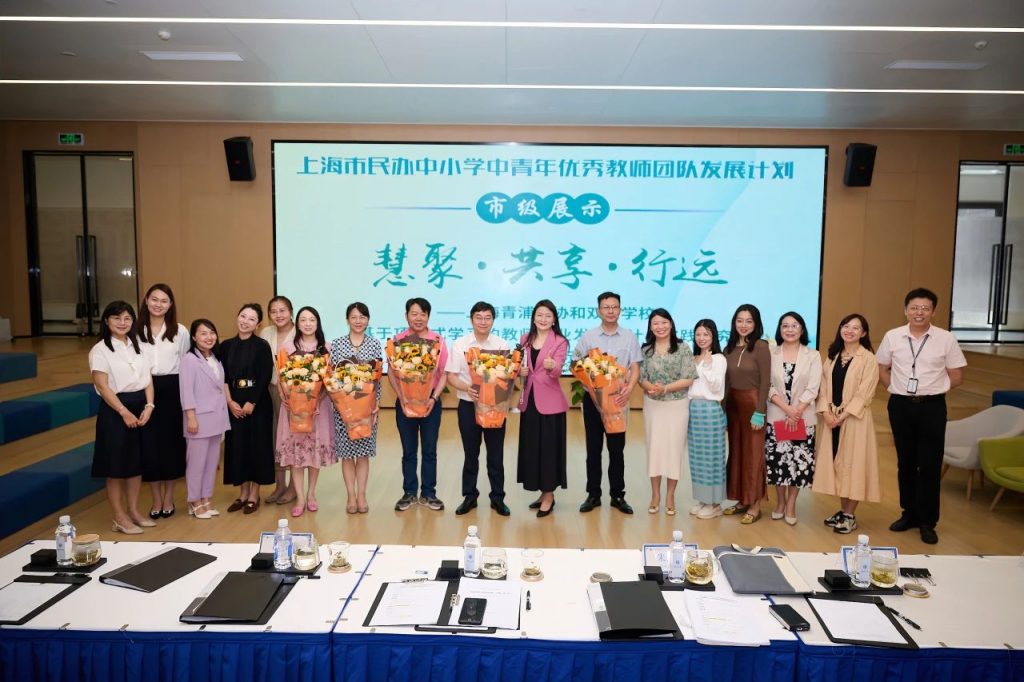In the spring, we plant a grain of millet in order to harvest ten thousand grains in the autumn – this planted seed will eventually transform into a forest.
On 28 September, 2023, Shanghai United International School Qingpu Campus’ Project-Based Learning (PBL) Teacher Professional Development Design and Practice Research’s project team successfully held a municipal-level exhibition at the school.
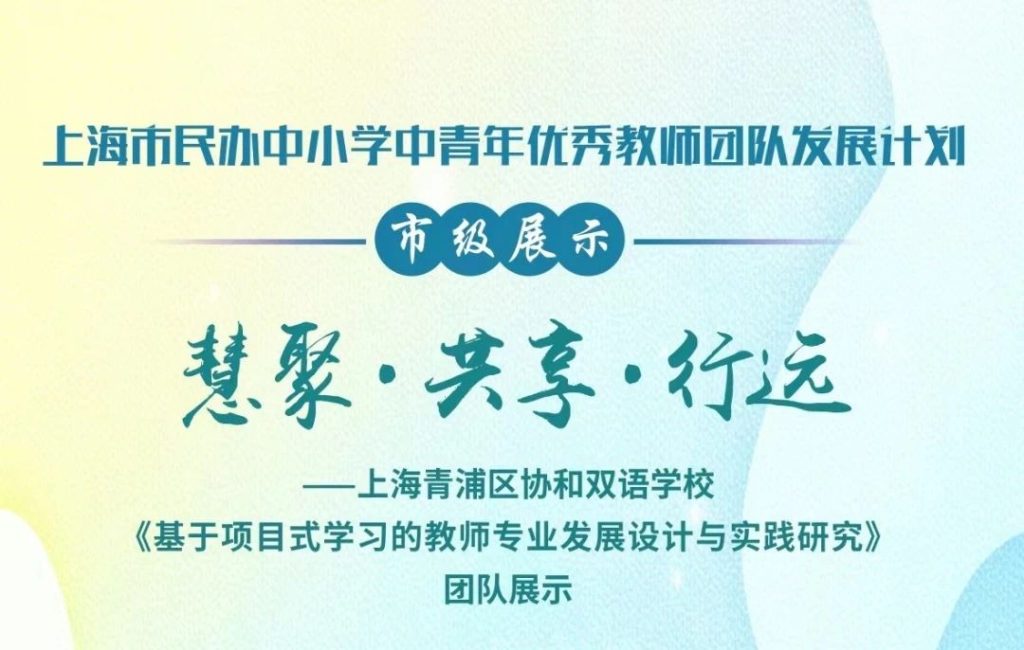
SUIS Qingpu had the honour of inviting several educational experts to the event: Yang Zhenfeng, Deputy-Director of the Shanghai Municipal Education Commission, Zhu Lianyun, Qingpu District Master Teacher, Qingpu District mathematics researcher Yang Aijun, and Minhang District language researchers Jing Hongchun and Shen Wenqing. Attendees also included representatives from the Maple Leaf School (Jinshan District) and Jinmeng School, and Li Mingwei, a member of the Qingpu District’s Seed Project Team. This event was also conducted in the form of a live broadcast to enable external participants to engage in the activities.
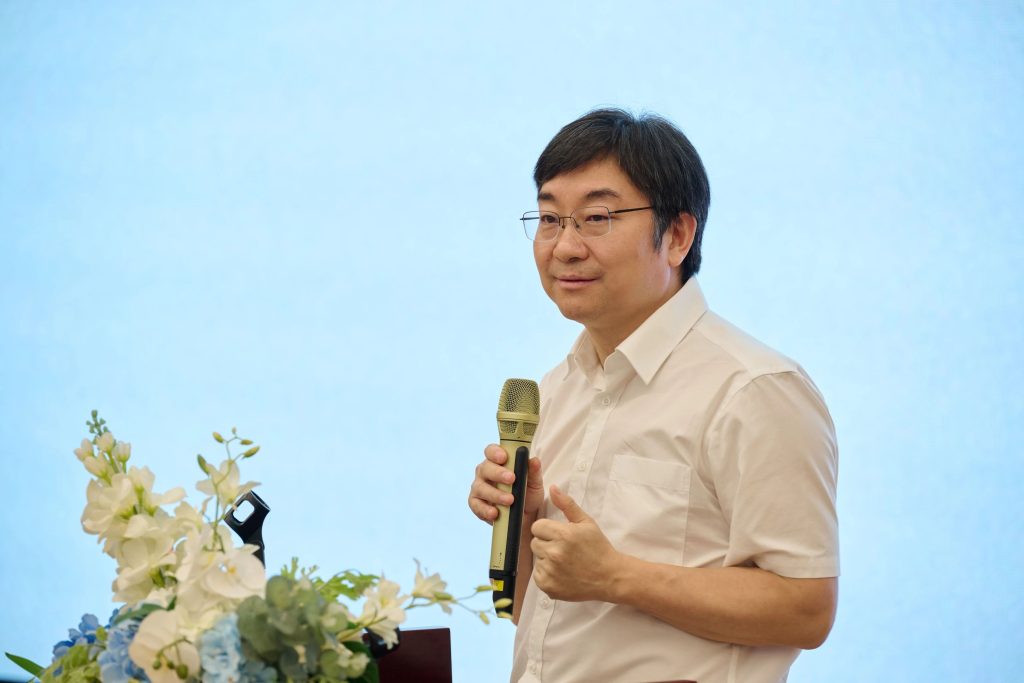
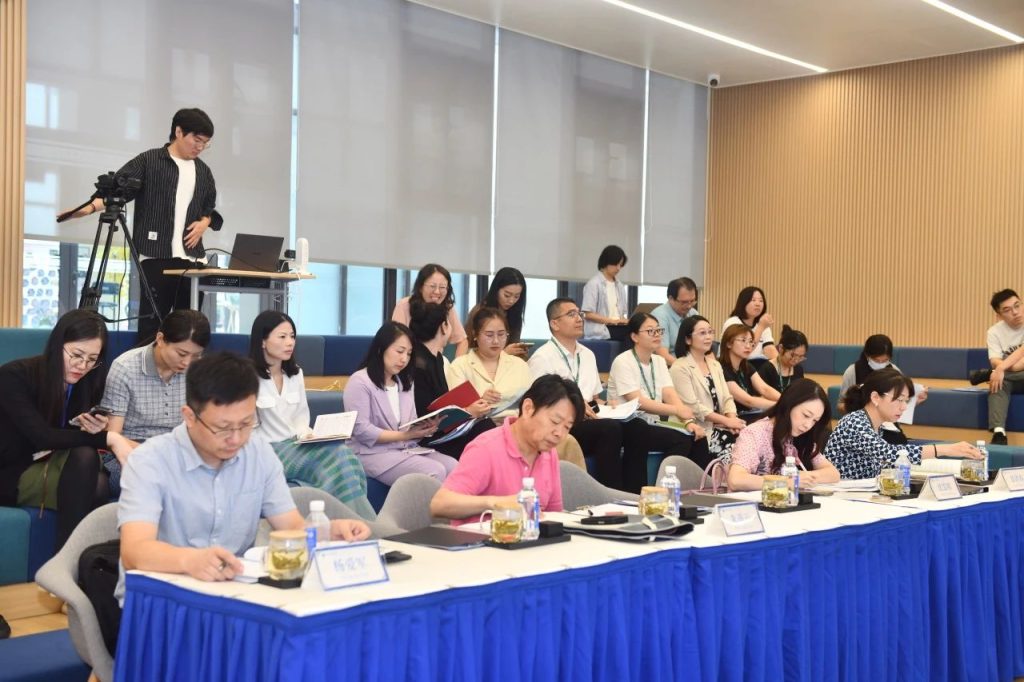
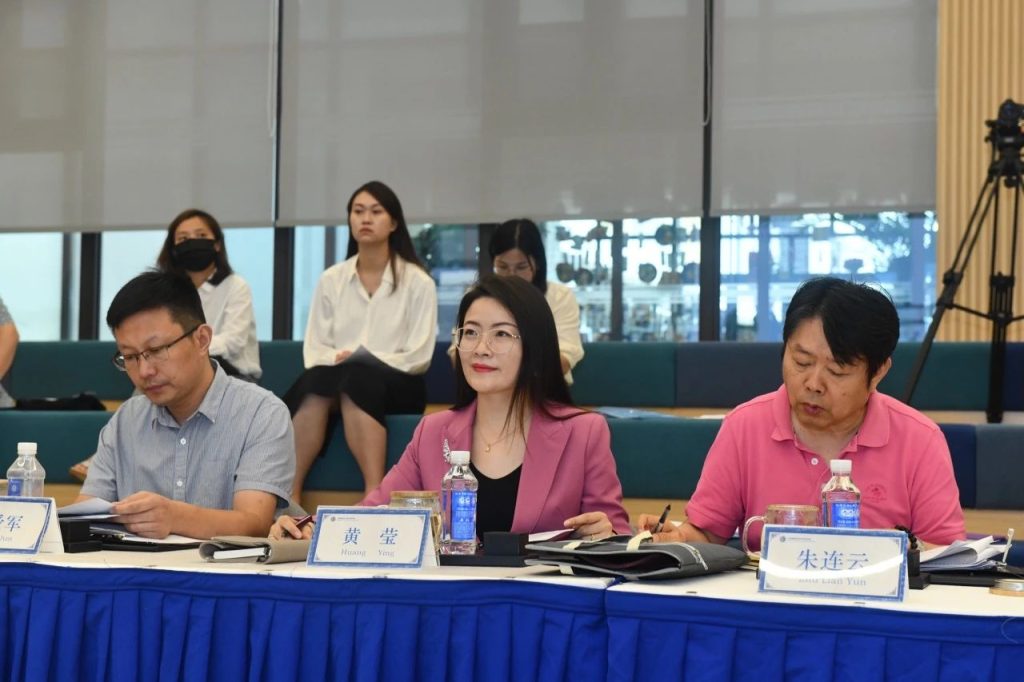
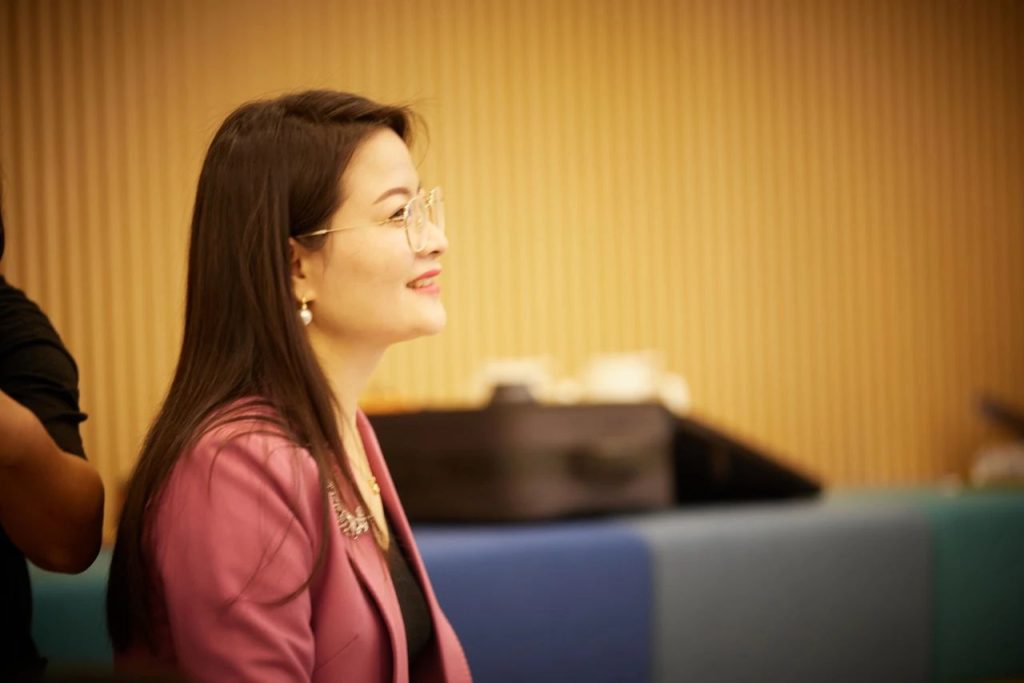
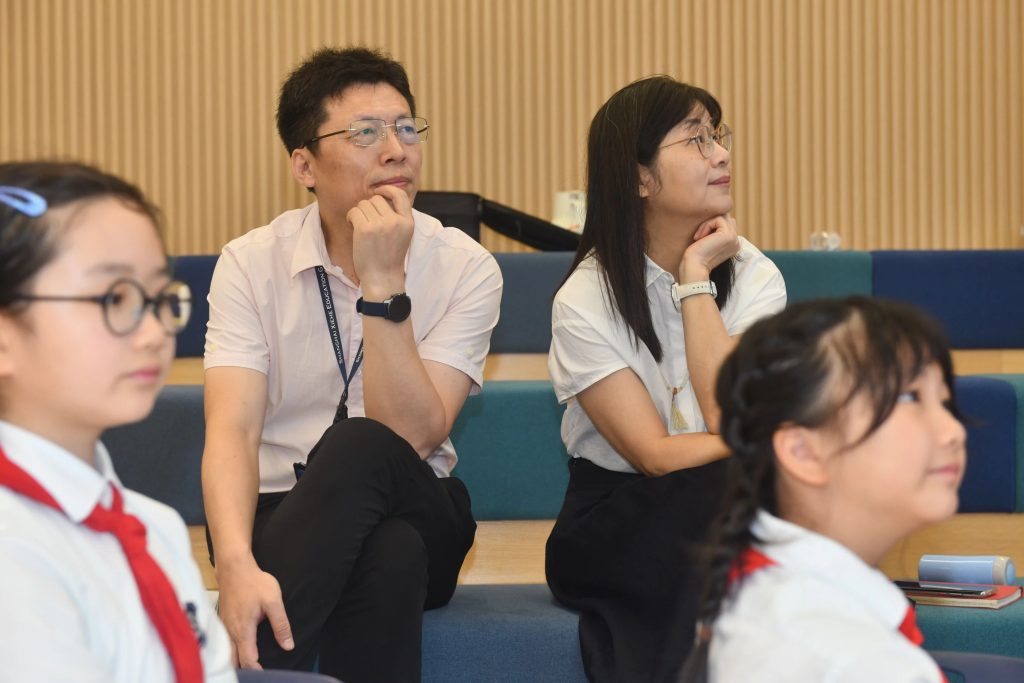
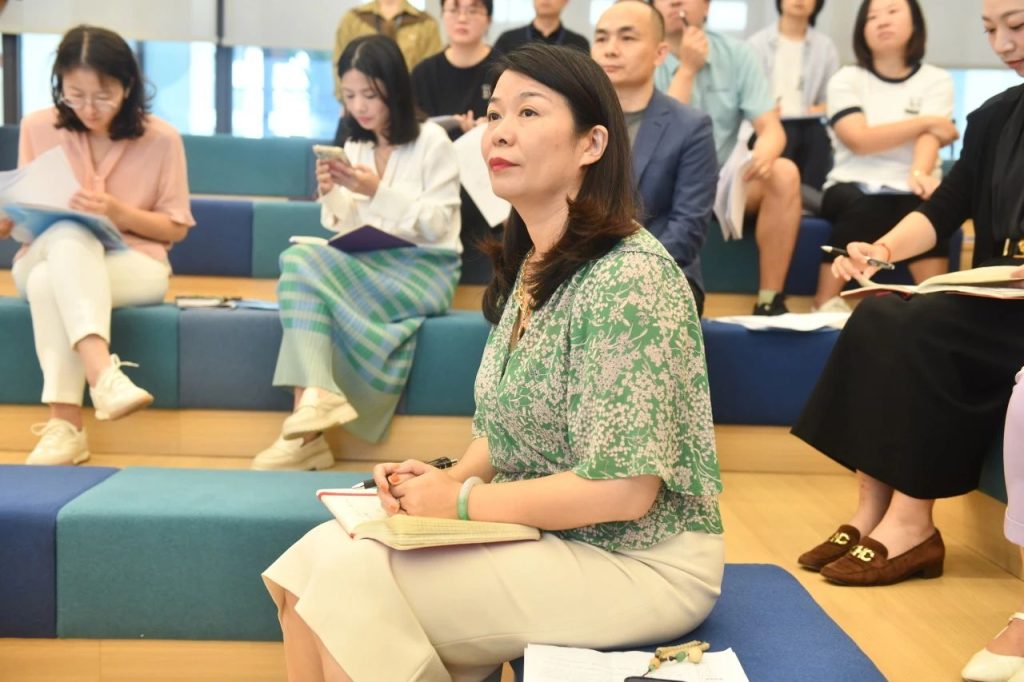
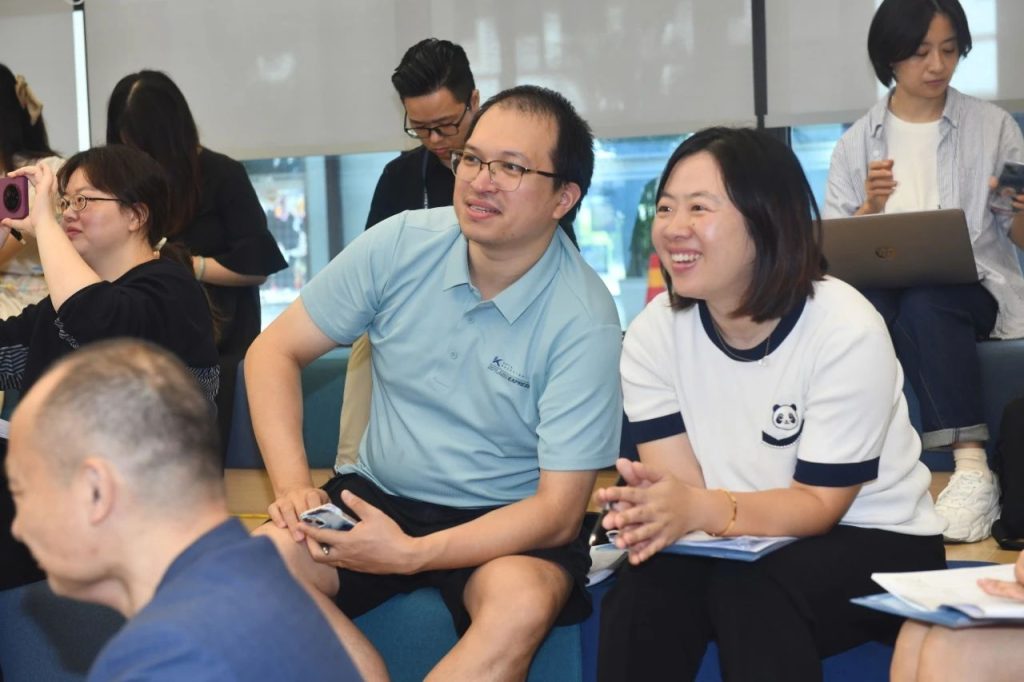
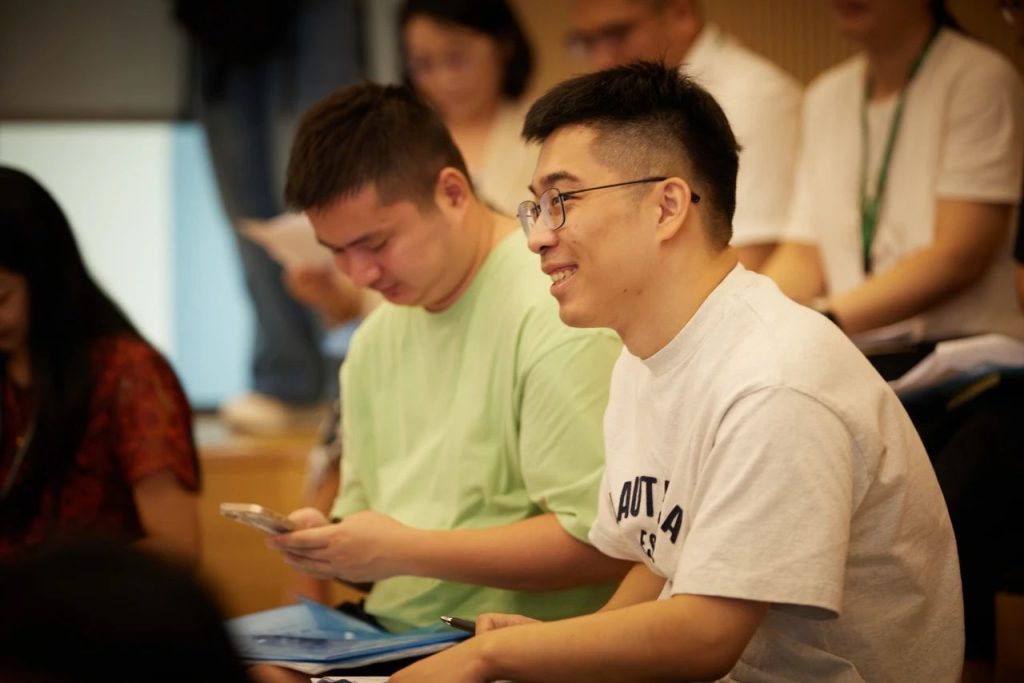
Reviewing our efforts, gathering for future development
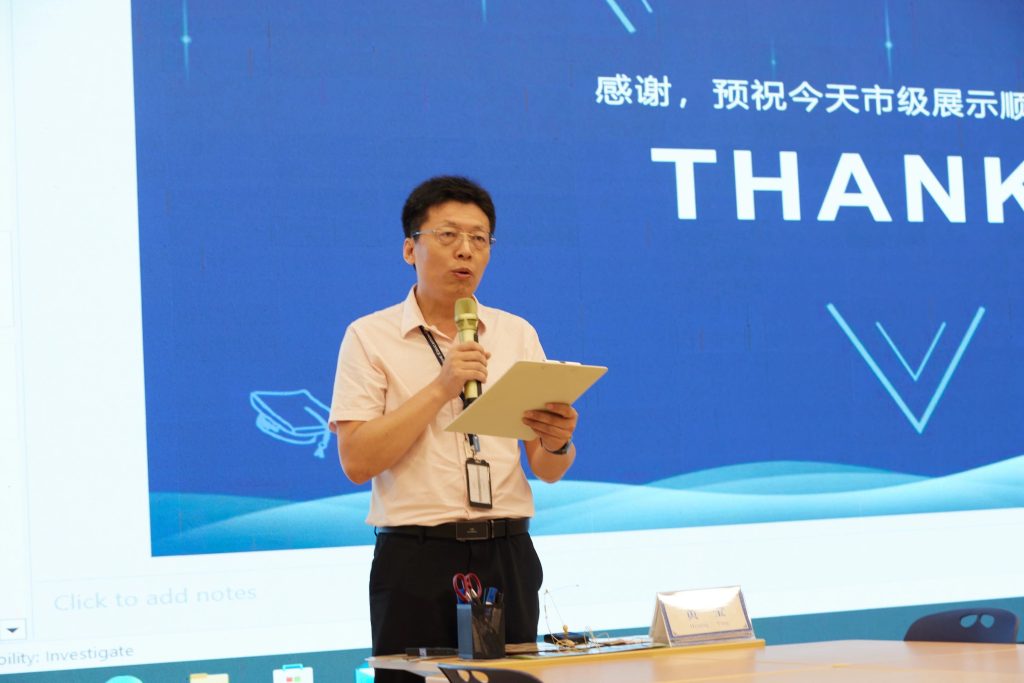
Director Li Mingwei of the Qingpu Cohesion Teacher Professional Development Center presided over this event and provided an explanation of the municipal-level presentation. Director Li stated that after two years of hard work, the school’s project has achieved many positive results, primarily thanks to the guidance of SUIS Qingpu’s Principal Sunny Huang, the collective efforts of all members, and the care and guidance of leaders at various levels, including the Shanghai Teacher Education College. During the project research process, not only was the development of the school’s curriculum promoted, but the professional growth of teachers was also fostered, yielding excellent results.
Integrated Training, Diverse Development

Principal Huang, who leads the project, shared insights about the project’s development, team roles, research approach, and the project’s phased achievements. She remarked on the use of project-based learning as a starting point to explore a model that promotes teachers’ professional growth. This model begins with addressing real-world problems, designing an integrated development path, discovering issues through research, solving them collectively, and fostering collaboration among subject teams. This project serves as an opportunity to advance teachers’ teaching philosophies, realize a ‘learning through action’ classroom model, drive the transformation of teaching and learning methods, and prioritize students’ holistic development.
Innovation in practice, integrating learning and application
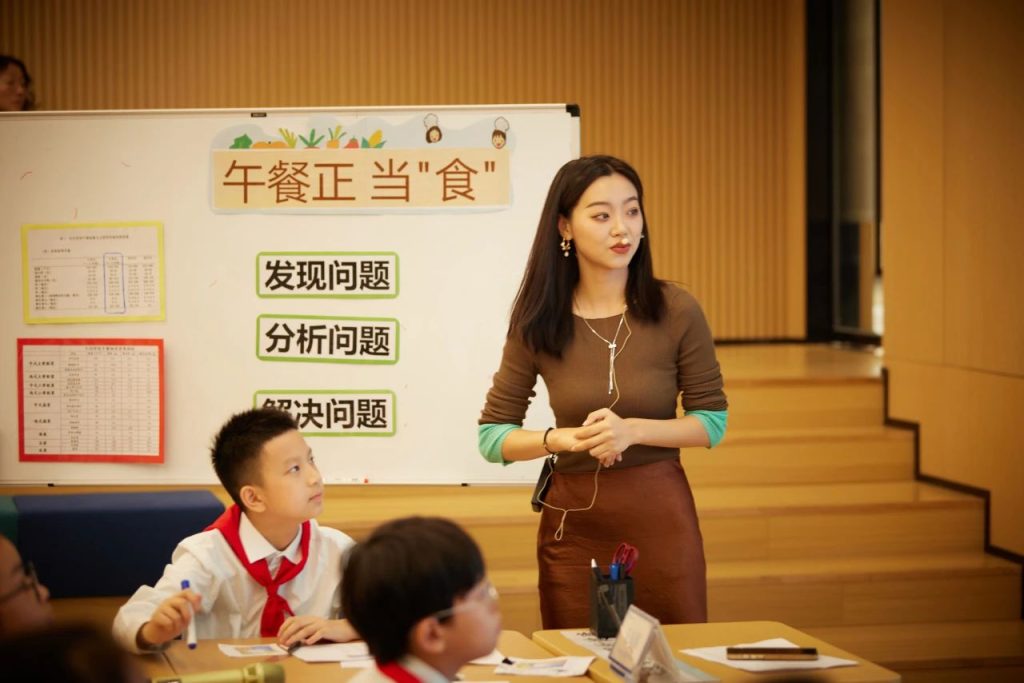
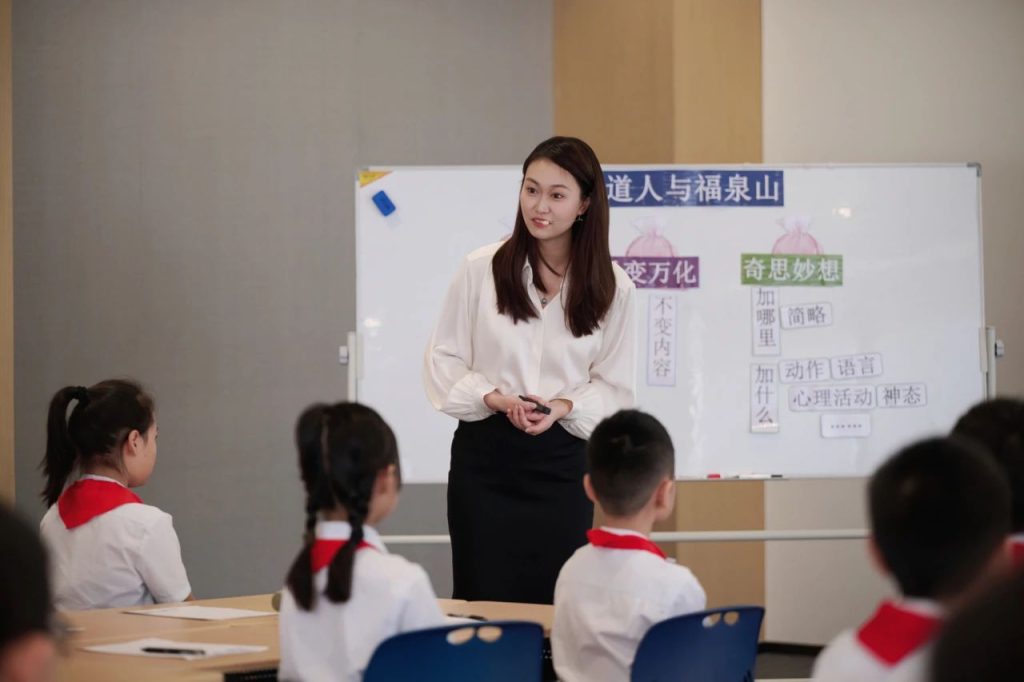
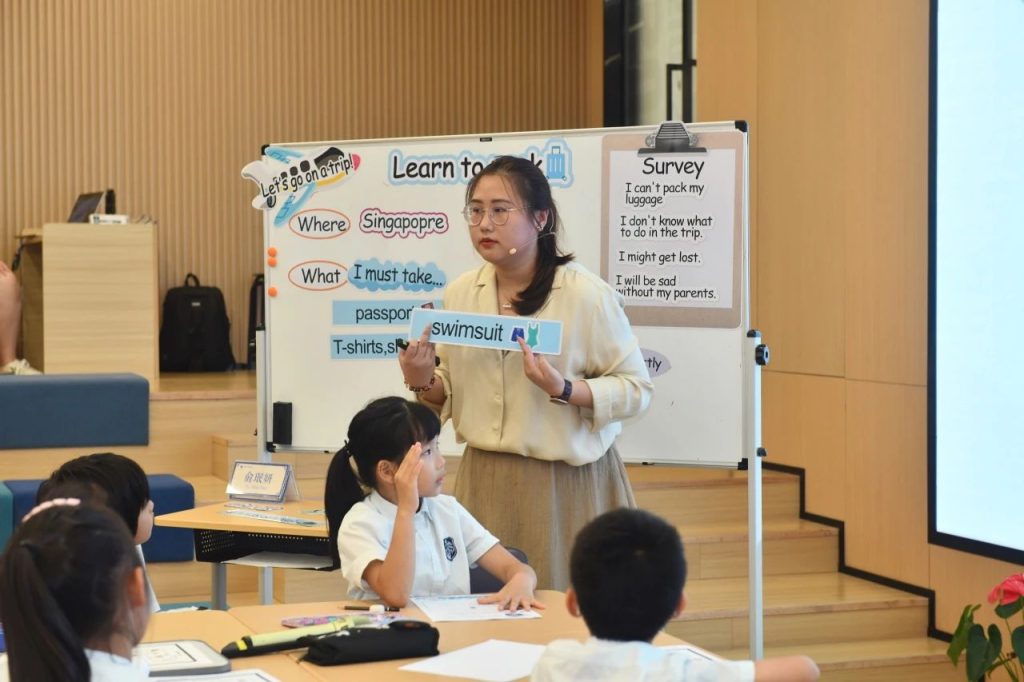
The main arena for learning is the classroom, where the central theme is student learning and where teachers form the backbone of progress. In the process of project-based learning (PBL), organized by subject groups and based on new curriculum standards, both new and experienced teachers promote the deep contemplation of real-life issues. The educators explored the process of designing subject-based and project-based learning, assisted in writing project-based learning cases, and reviewed classroom practice cases to facilitate the professional growth of young teachers. The showcased lesson in this particular public demonstration was conducted by early-career teachers under the guidance of the project team teachers, demonstrating the expansive effect of project team members’ professional guidance, achieving profound reflection in the integration of learning and application in innovative classrooms.

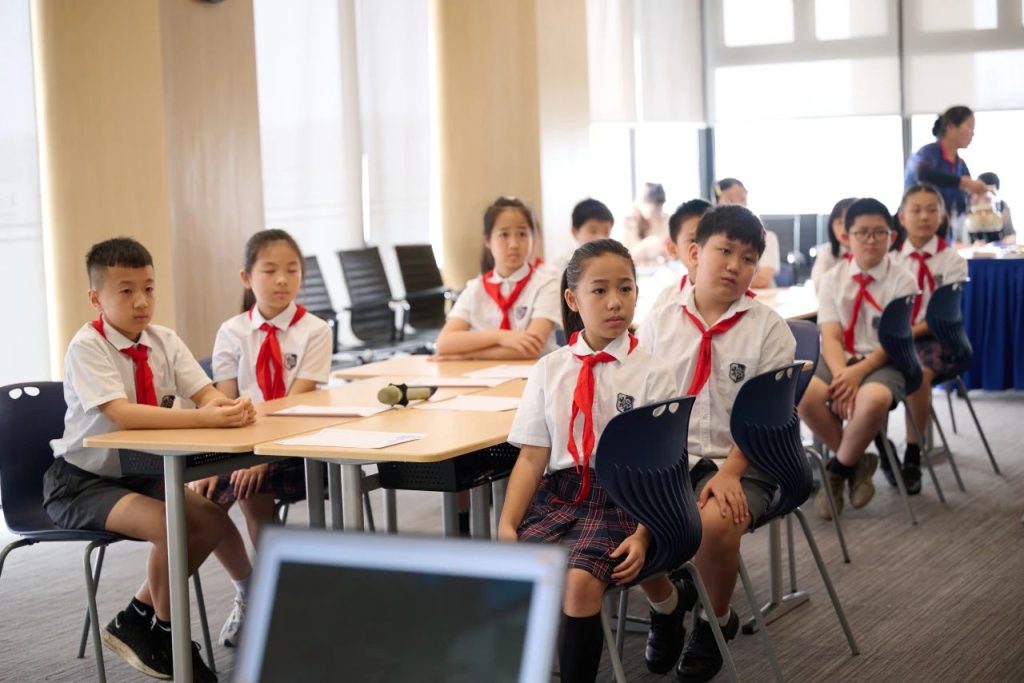

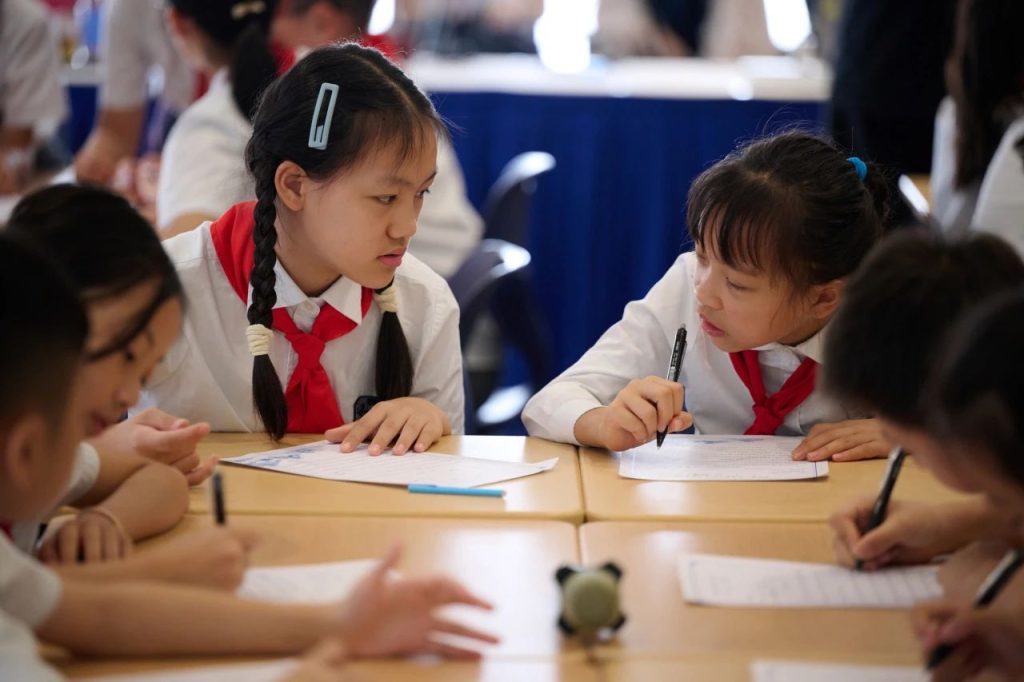
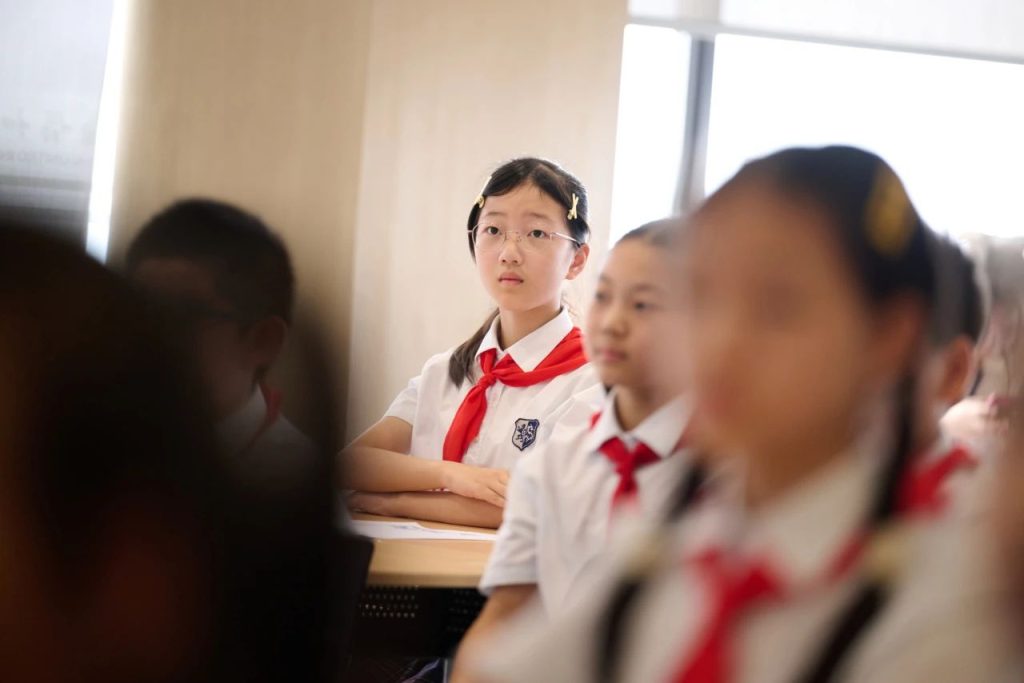
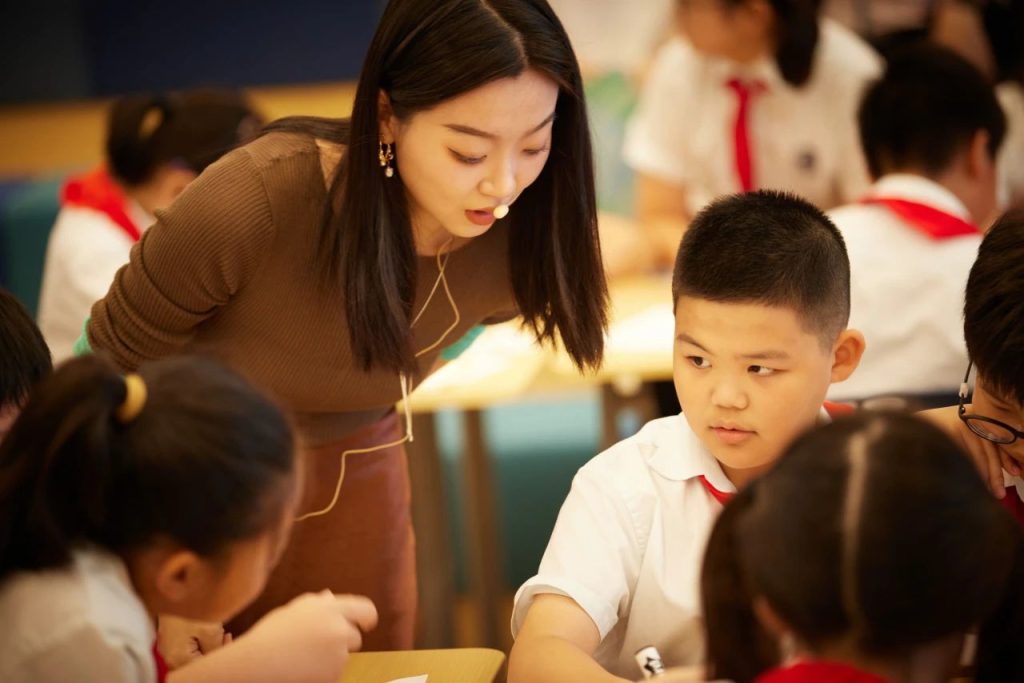

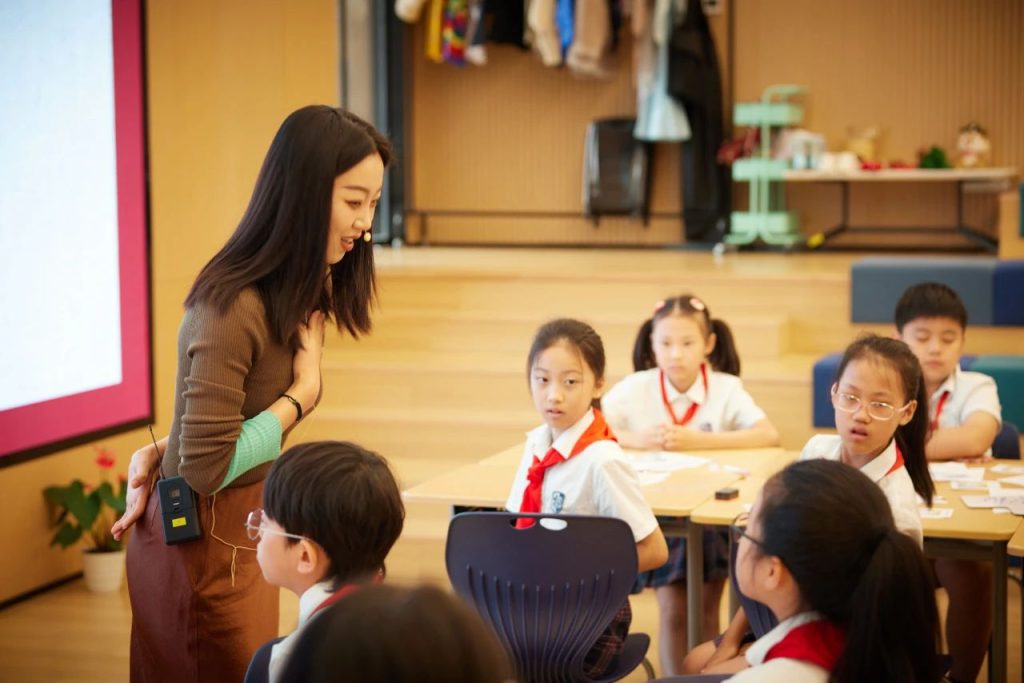
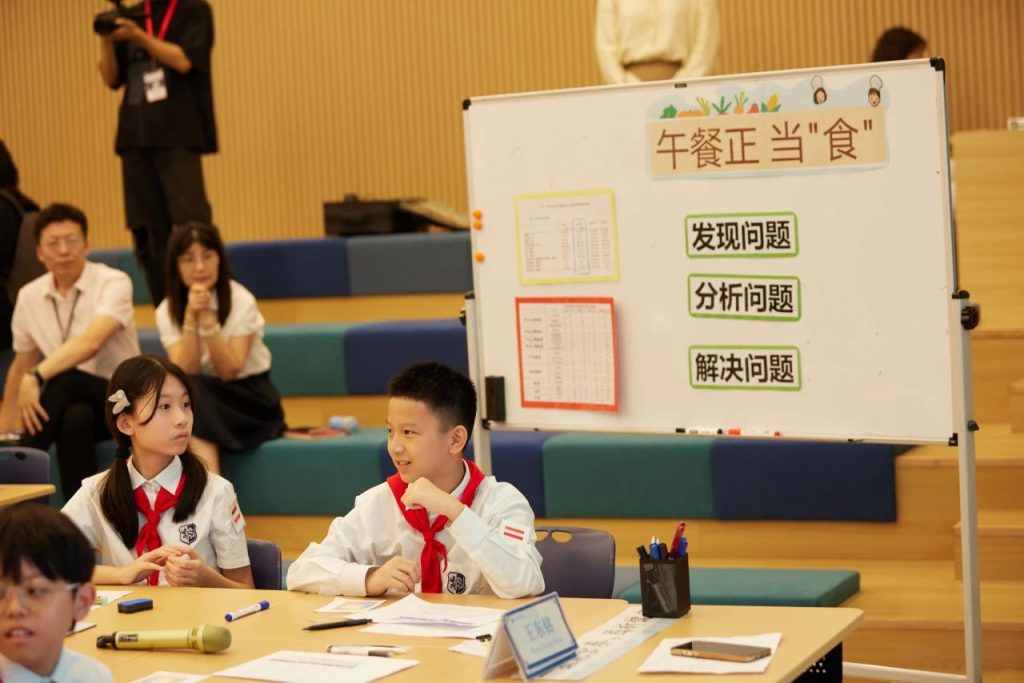
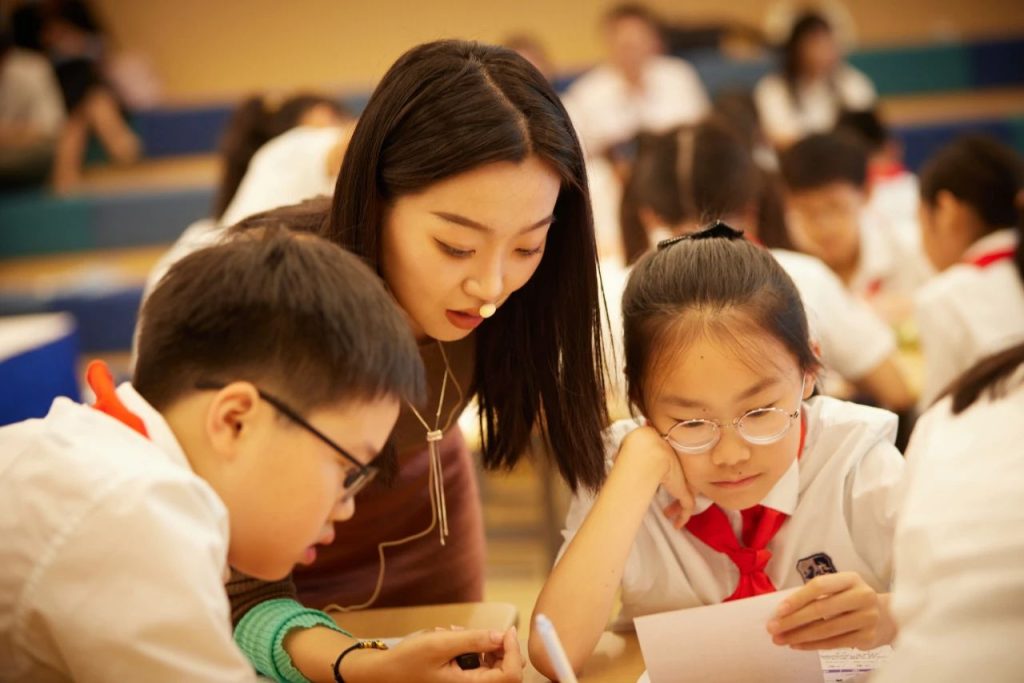
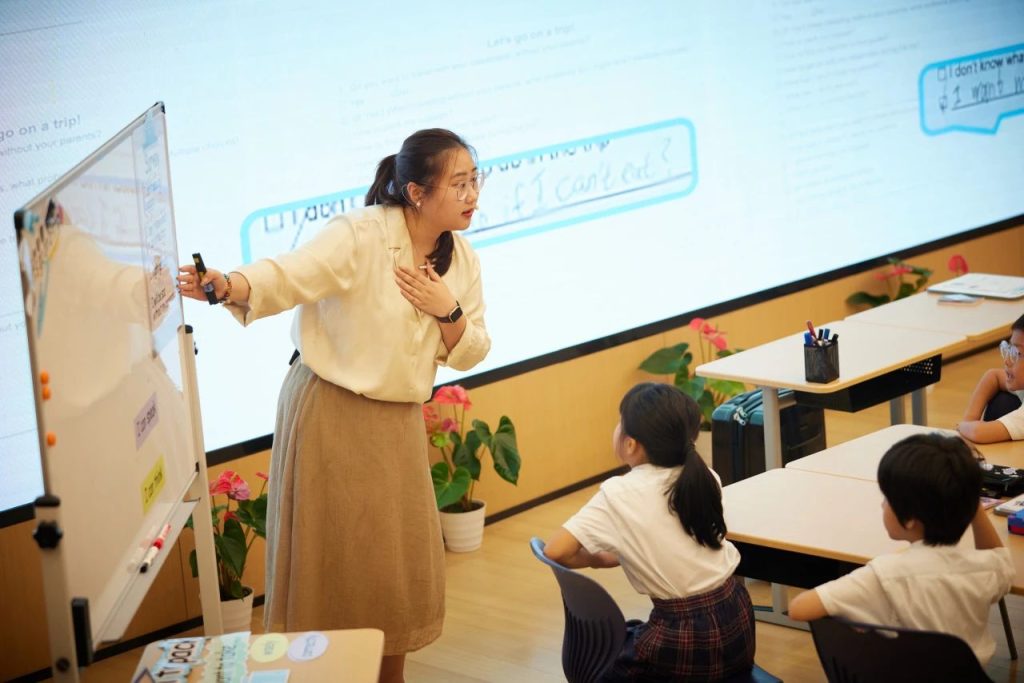
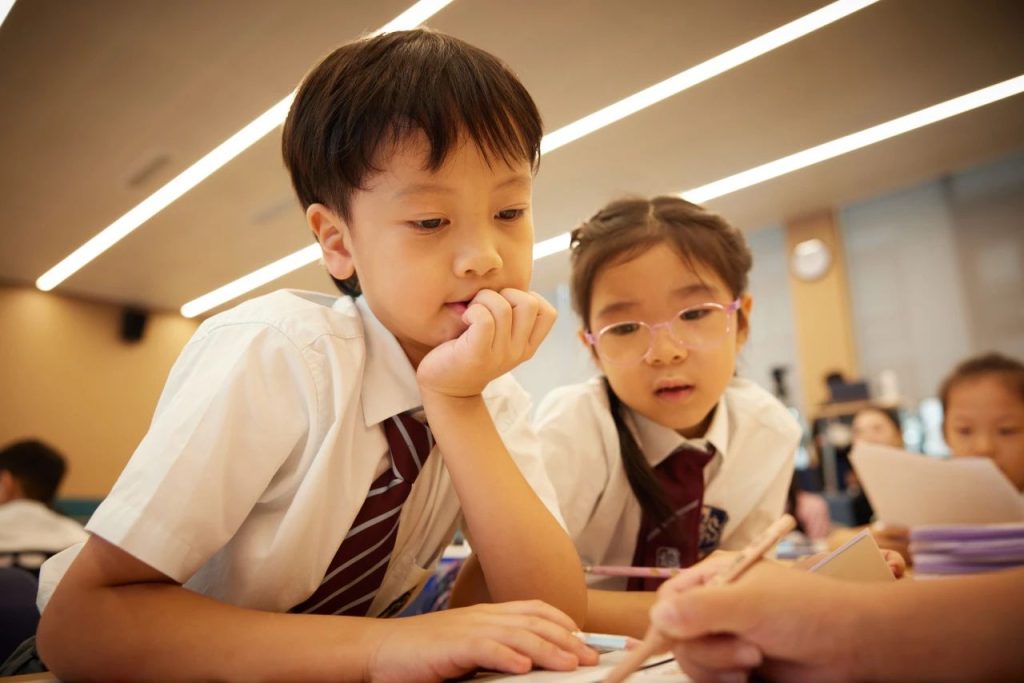


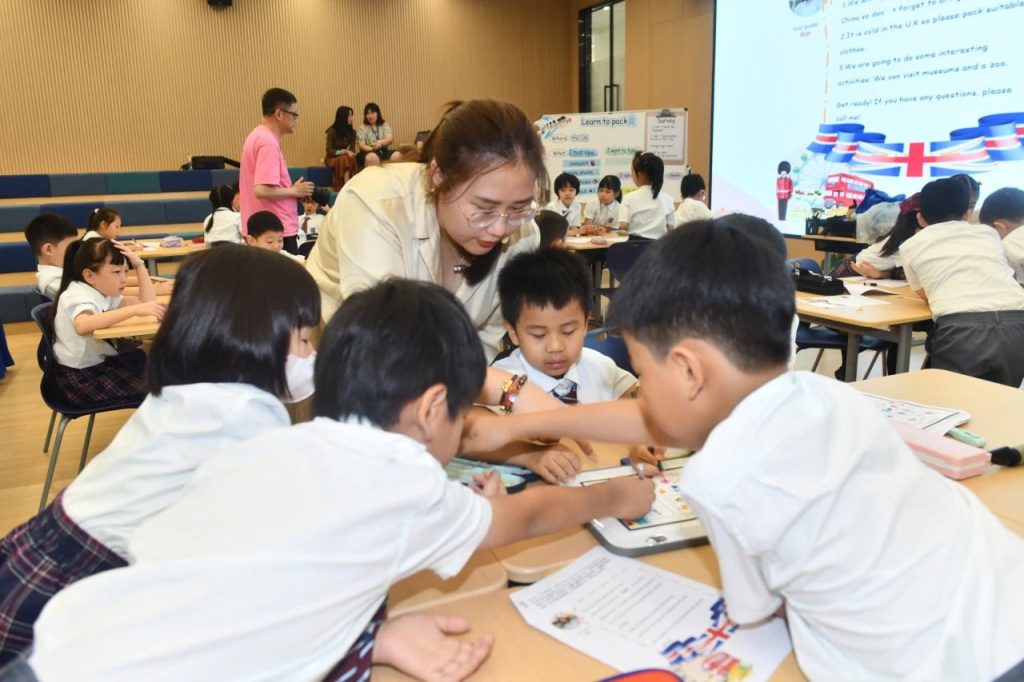
The Chinese Language Arts team presented practical lesson examples for an expanded learning task group, the mathematics team showcased project-based integrated and practical lesson examples, and the English team conducted comprehensive practical activity lesson demonstrations. These three lessons were taught by Grade 5 teacher Luo Rujia, Grade 5 teacher Wang Dongming, and Grade 2 teacher Yu Minyan, respectively. They incorporated real-life contexts, aligned with national curriculum standards, focused on core skills, and adopted a problem-oriented approach to nurture students’ ability to solve problems independently. This event successfully demonstrated the results of SUIS Qingpu’s exploration of subject-based practices, highlighted the classroom innovation and teaching abilities of early-career teachers, and served as a reflection of professional growth among the faculty at SUIS Qingpu.
Theme Sharing – Moving Towards the ‘New’
The core members of the project team, teachers Liu Guixiang, Shi Jianfeng, and Yu Chen, each gave theme-based presentations in the fields of Chinese Language Arts, STEAM, and Psychology, respectively. The presentations by these three teachers allowed us to see how different subjects can engage in PBL practices, thereby promoting the development of the overall teacher team.
Topic 1:Tell Chinese Stories Well to Cultivate the New Generation, by Liu Guixiang

Assistant Principal Helen Liu, in her theme presentation on “Using Project-Based Learning to Tell Chinese Stories,” demonstrated a student-centered approach, focusing on the development of students’ core abilities while using culture as a foundation, resulting in the deepening of teaching practices. She has developed a PBL model and assessment system suitable for our school’s cultural curriculum, simultaneously encouraging Chinese language teachers to engage in in-depth research on the ‘Dao’ and ‘Art’ of their subject, expanding from individual Chinese language teaching to more universal experiences, thus laying a solid foundation for the essential learning development of our students.
Topic 2:Project-Led STEM Curriculum, by Shi Jianfeng
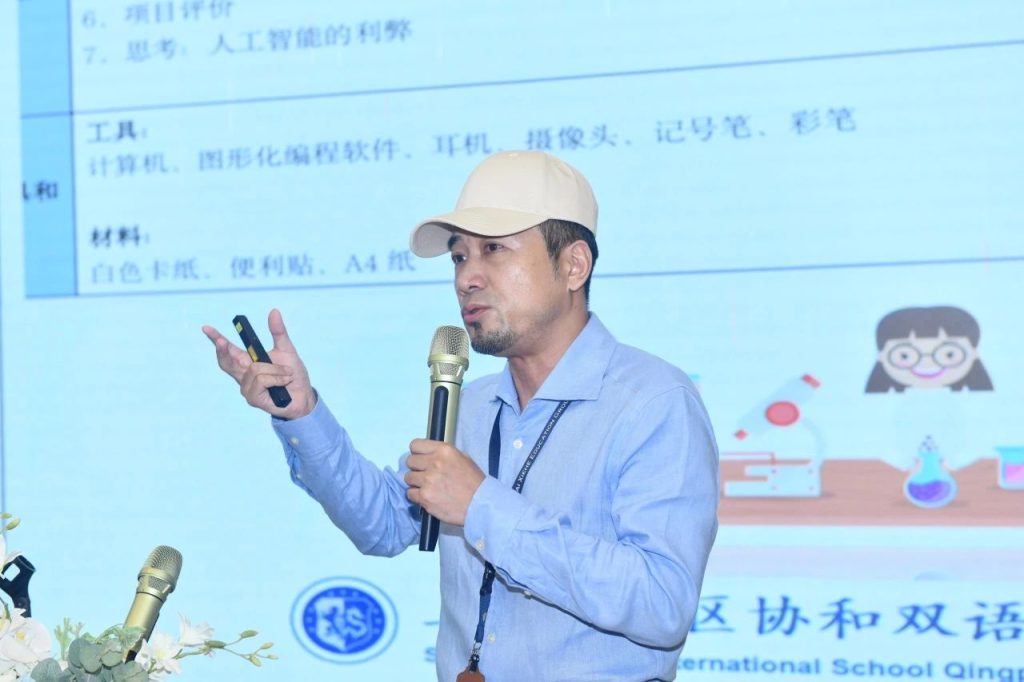
The Head of the Science Department, teacher Shi Jianfeng, in his theme presentation on ‘Project-Led STEM Curriculum,’ showcased the results of promoting teachers’ professional development and enhancing students’ fundamental abilities during the development and implementation of PBL courses. In project-based teaching, teachers continuously restructure teaching materials, integrate various subjects and community resources, and assist students in constructing new knowledge while solving problems. By adhering to learning through action, studying during learning, and focusing on real-world task-driven practical exploration, teachers naturally enhance their teaching and research abilities, helping students acquire key subject skills.
Topic 3:The Project Sets Sail – Minds Collide for Mutual Growth, by Yu Chen
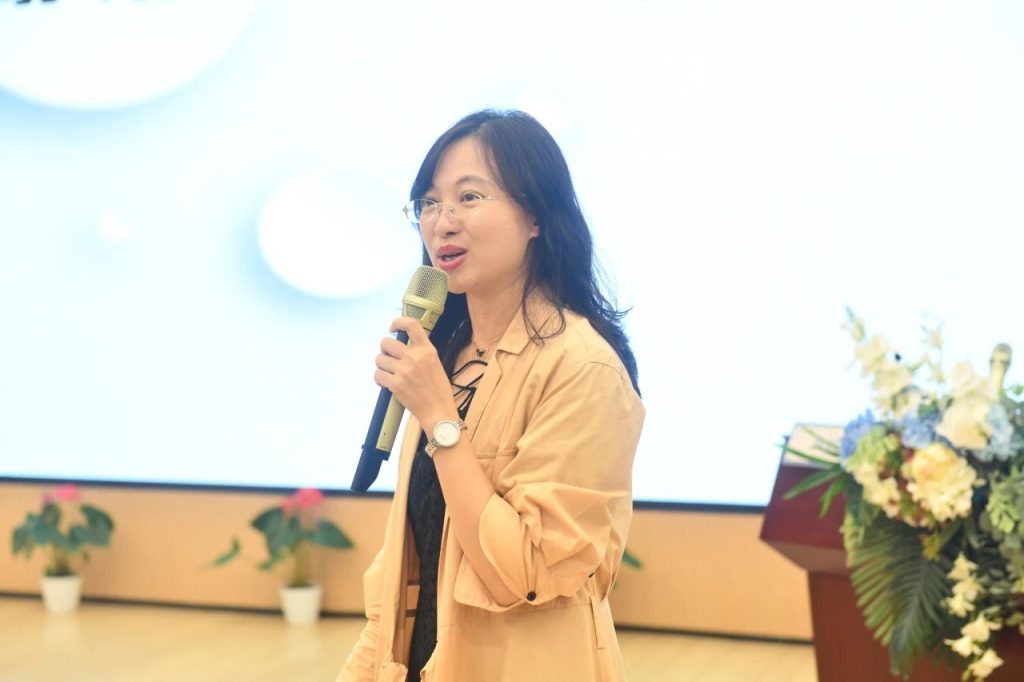
Teacher Yu Chen, with the theme “The Project Sets Sail, Minds Collide for Mutual Growth”, shared the path of implementing psychological project-based courses. Children, through independent exploration and field research, experienced firsthand what it feels like to be the target of malicious jokes. They also explored the techniques required for making jokes and discovered strategies for handling or correcting hostile humour. The implementation of this project extended its influence across the whole school, promoting anti-bullying thematic project-based activities with increased student participation. These activities facilitated mutual understanding, empathy, and effective responses, contributing to the creation of a friendly campus environment. The exploration of psychological project-based courses further improved the school’s student-centric curricular system, making valuable attempts towards enhancing the professional development of psychology teachers.
Salon Forum, Sharing Growth
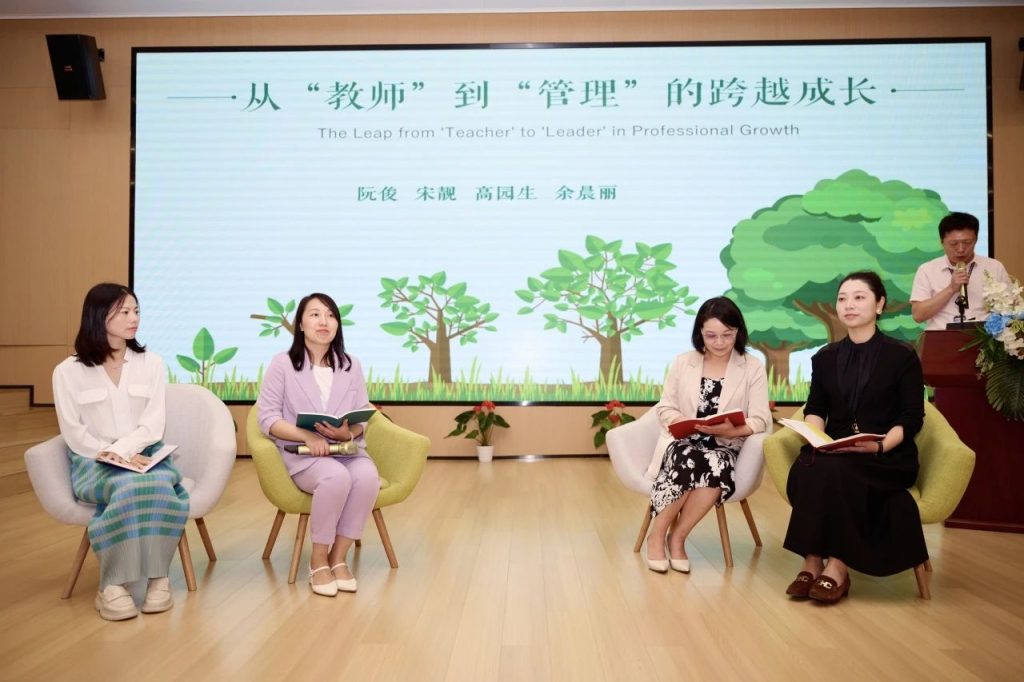
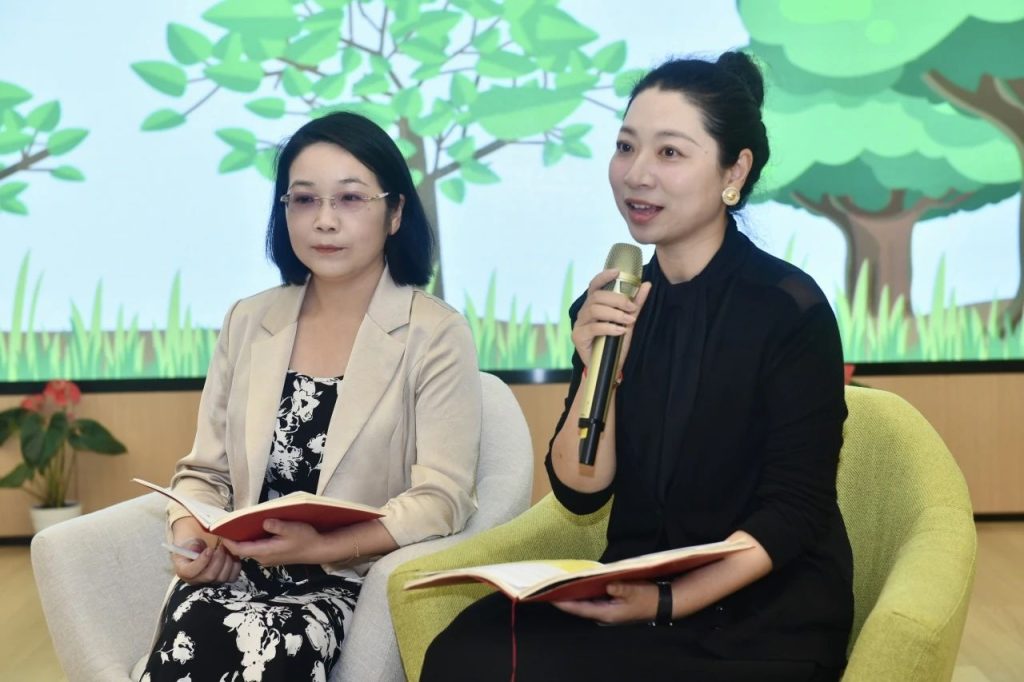
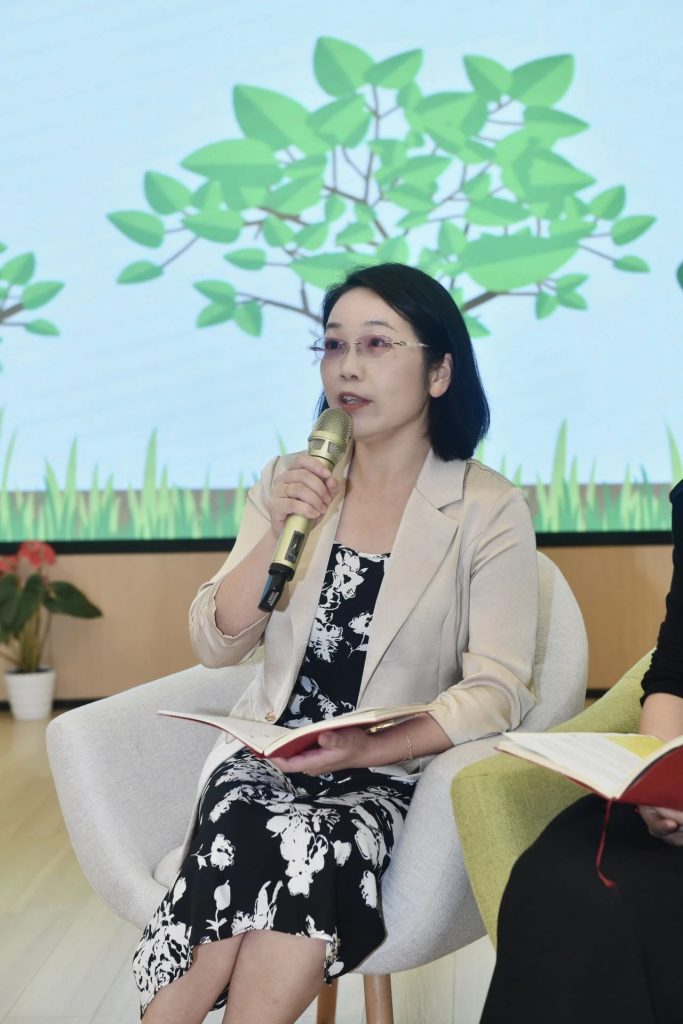

Core members of the project team, Ruan Jun, Song Liang, Yu Chenli, and Gao Yuansheng, have grown into leaders in various fields in the school and have advocated for curriculum development as they explored the practice of PBL. These four teachers engaged in a discussion and sharing session entitled, “Crossing from ‘Teachers’ to ‘Management’: Growing Together”. Throughout their involvement in project research, they dug deeper into the exploration of PBL practices, grasping their professional expertise to influence their fellow teachers. Using PBL as a focal point, these teachers created various opportunities for learning and presentations through collaborative project platforms, breaking down barriers between teachers and subjects, and fully utilizing the strengths of team members. Their efforts achieved the integration of PBL and teacher professional development in various activities, much like the dynamic process of a young tree growing into a mature tree and eventually into a forest, forming the unique and fruitful educational ecosystem at SUIS Qingpu.
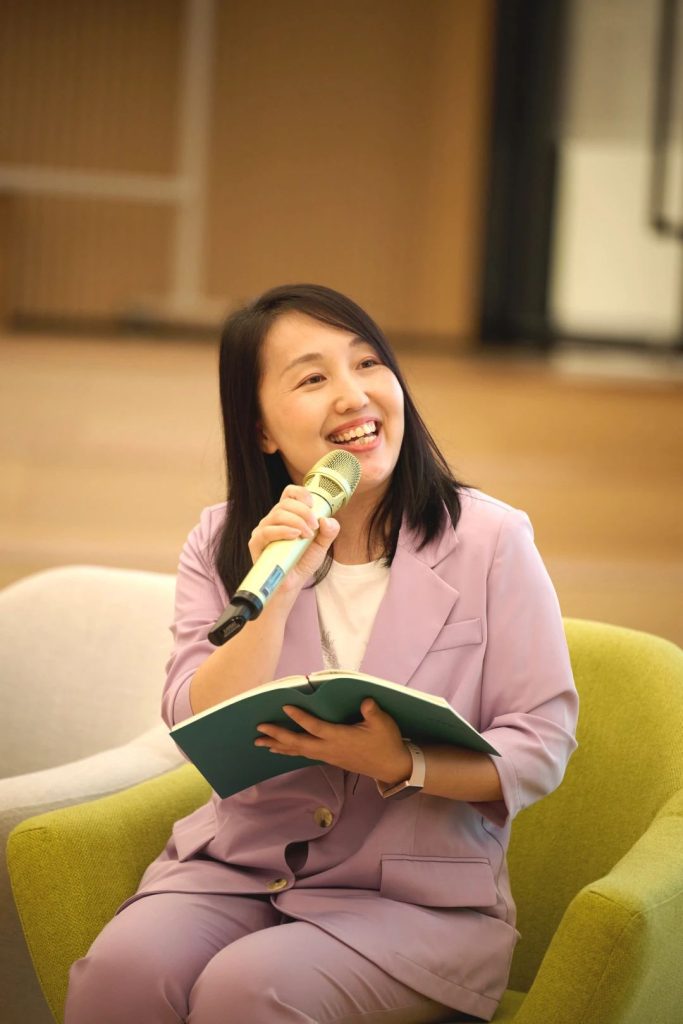
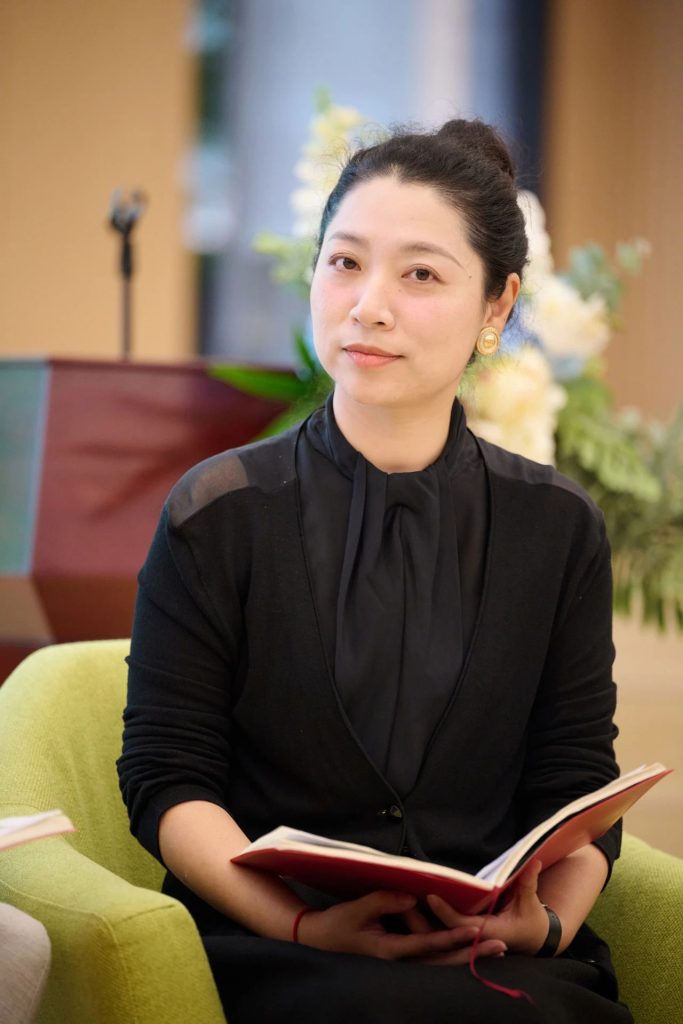
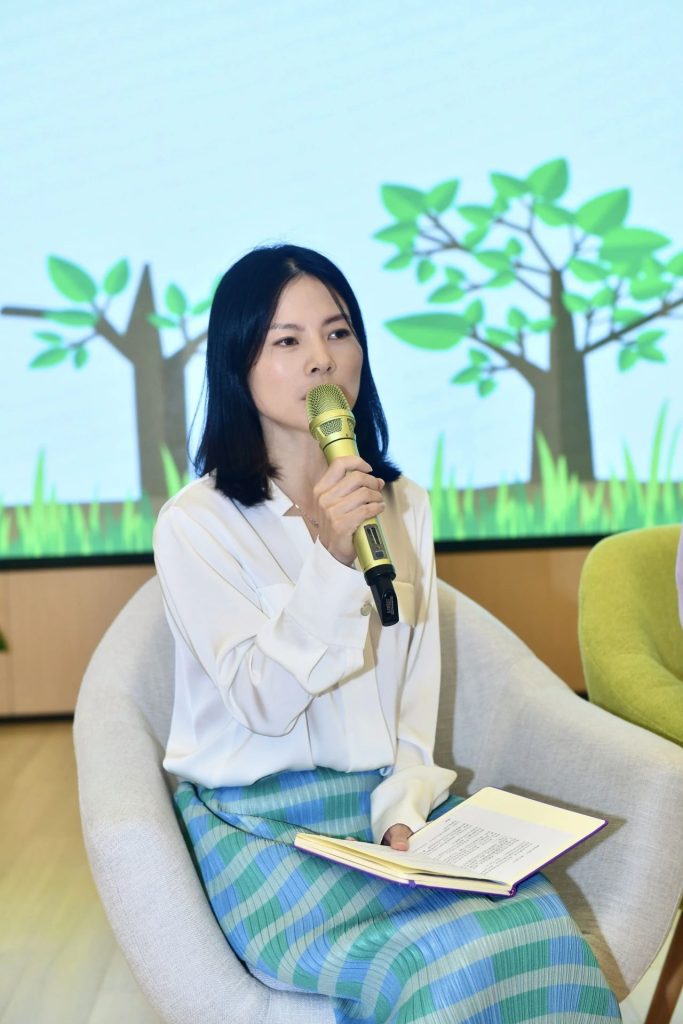
Expert Guidance, Optimization, and Enhancement
Minhang District Chinese Language Educational Research Officer, Jing Hongchun
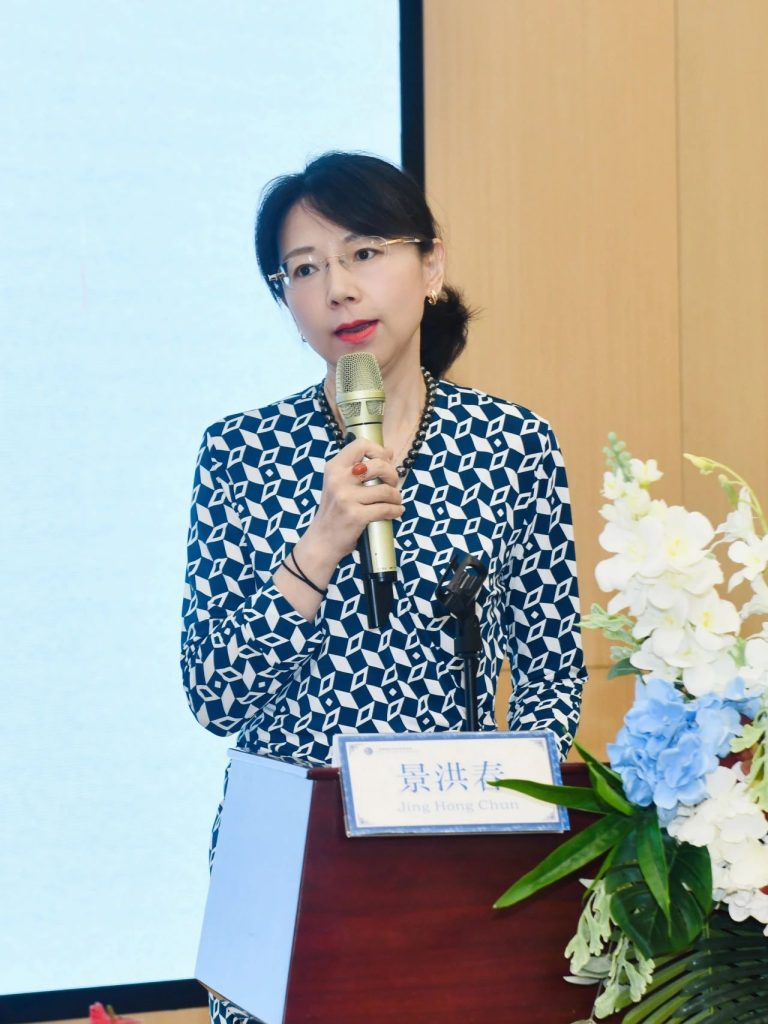

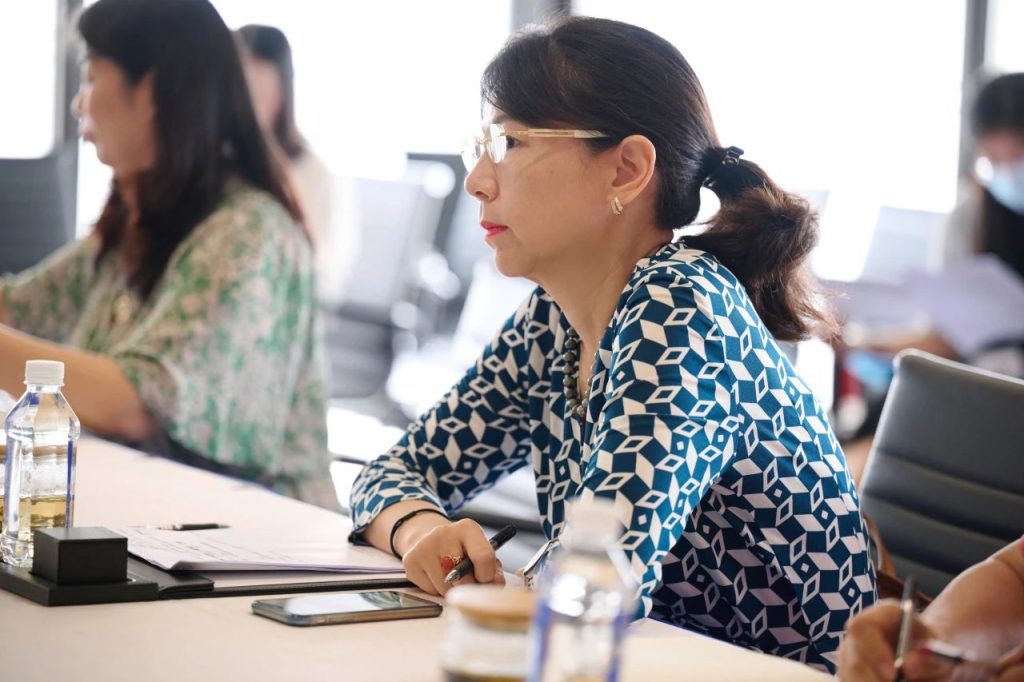
Teacher Jing Hongchun praised the event as “valuable, visible, delightful, and attainable.” She marveled at the exploratory spirit of school leadership and the teacher team in the process of promoting PBL, in particular the breakthroughs in integrating training and a student-centered approach. These efforts truly allowed PBL to take root within the subject matter. Students built confidence in expressing themselves and problem-solving in the classroom, while teachers focused on curriculum standards, broke through textbook boundaries, and emphasized student development. She looks forward to our continued research, to further deepening our development, to placing greater importance on students’ foundational knowledge comprehension within this context, and to continually breaking through classroom limitations.
Minhang District English Language Educational Research Officer, Shen Wenqing
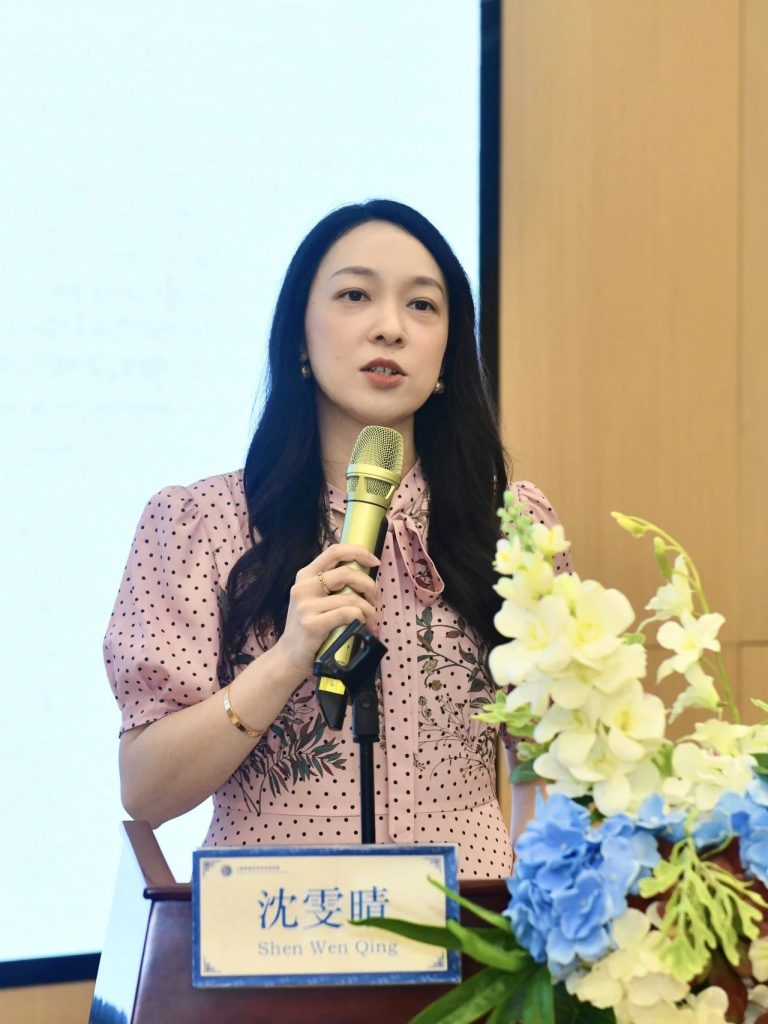
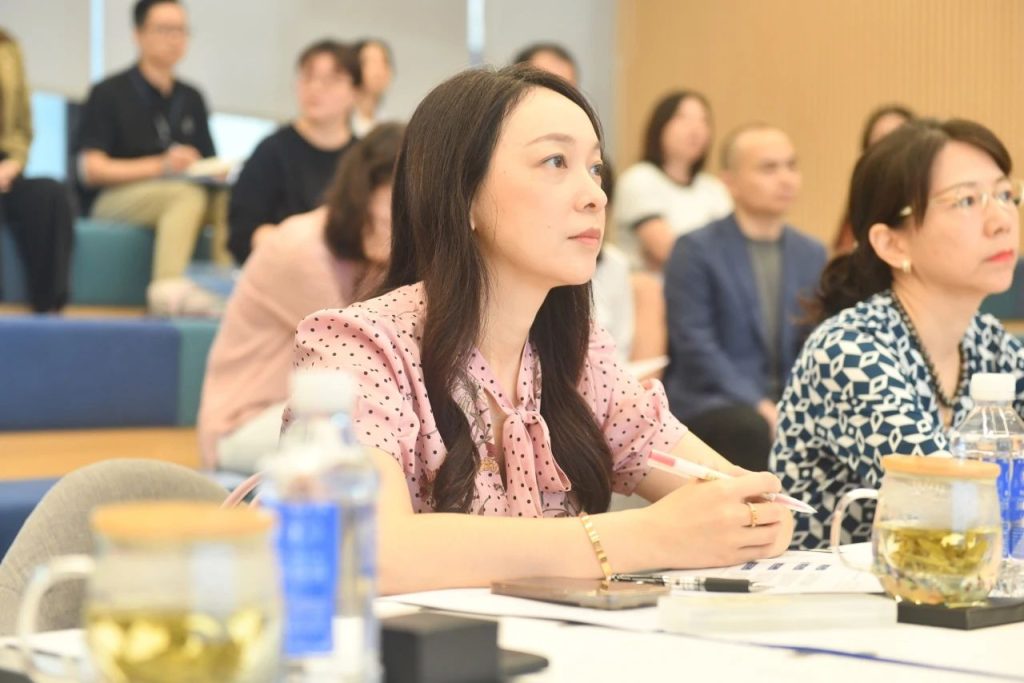
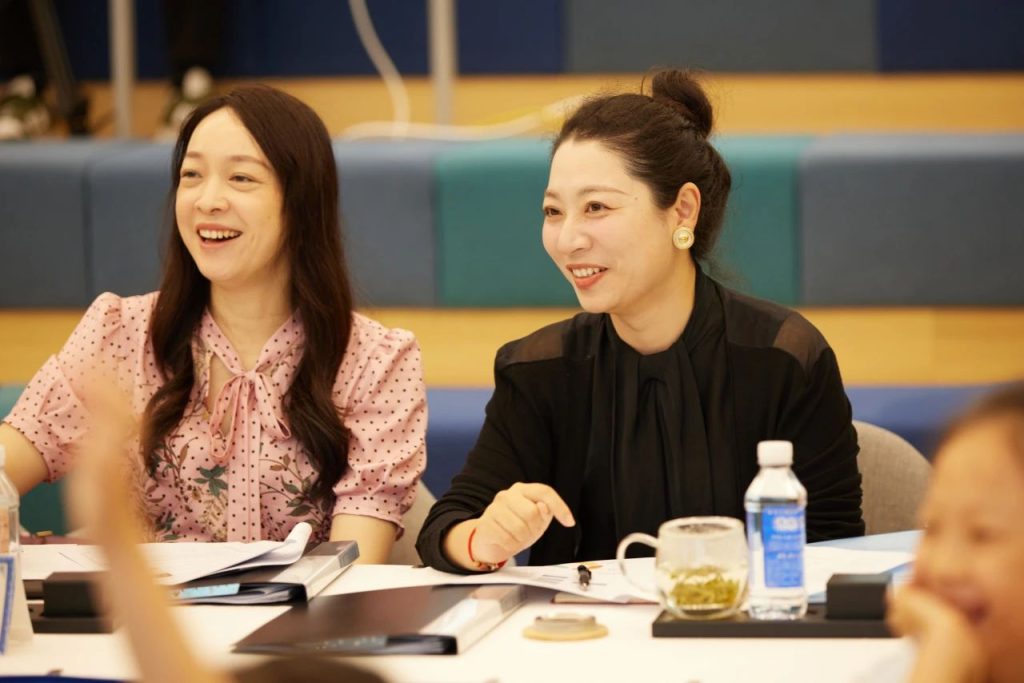
Teacher Shen Wenqing highly praised the English PBL practices in the lower grades with the concept of “Three guiding principles” and “Three integrations”. Starting from students’ real-life experiences and addressing their actual problems, she ignited students’ curiosity for inquiry. These classrooms activities aimed at the formation of thematic cognition, the development of core competencies, and the implementation of subject-based education.
Teacher Shen cleverly integrated unit topics with students’ lives, merged thematic contexts with thematic definitions, and combined subject knowledge with real-world issues. She encouraged teachers to continue focusing on the meaningfulness and emotional value of projects in students’ lives, providing more language learning support for lower-grade students and gradually advancing their exploration.
Minhang District Chinese Language Educational Research Officer, Yang Aijun
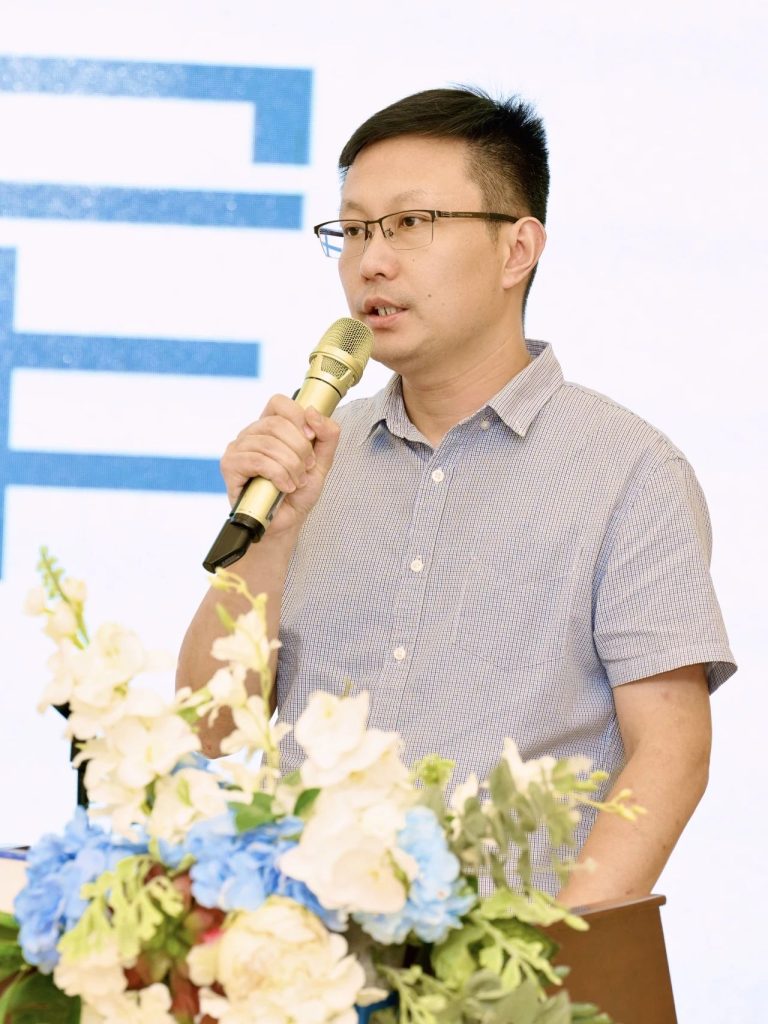
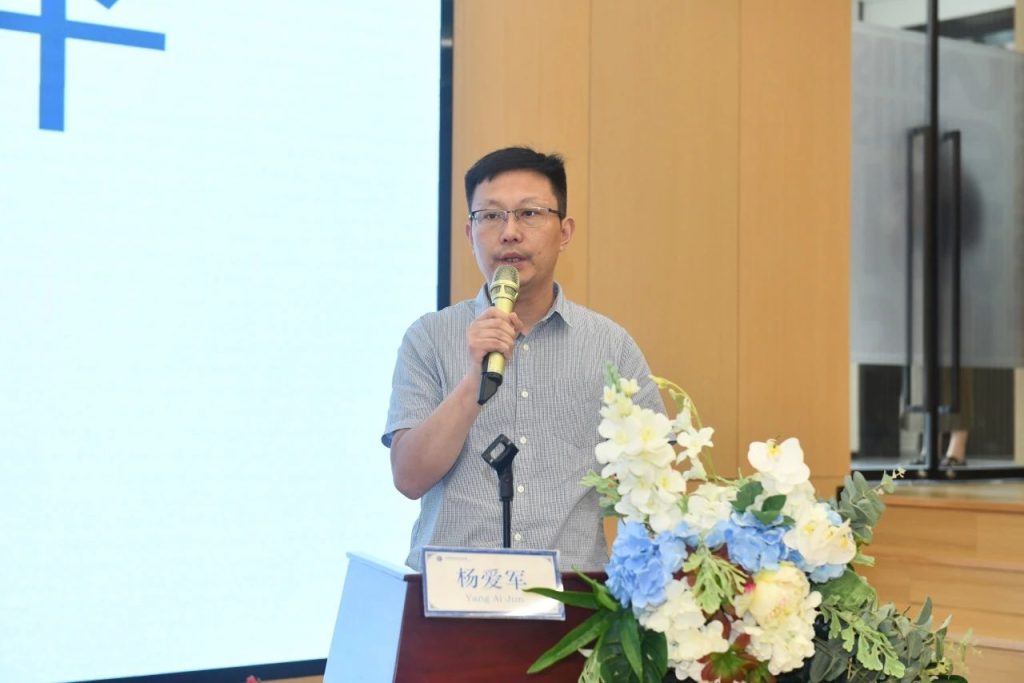
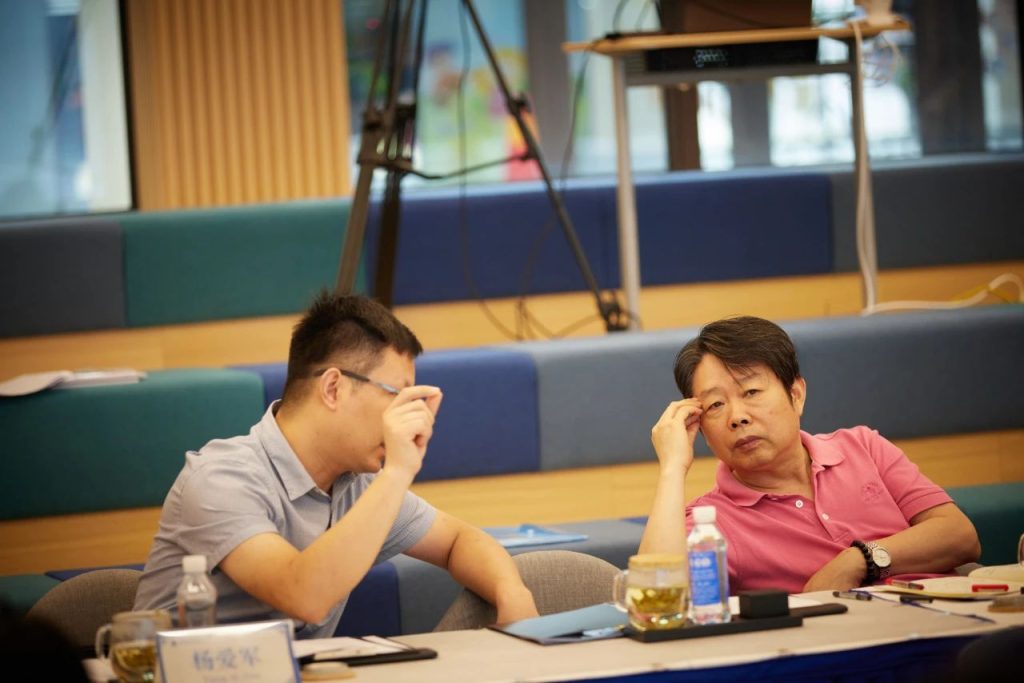
Teacher Yang Aijun provided a clear and insightful assessment of mathematics classrooms from the perspective of cultivating students’ essential skills. She emphasized starting from real-life situations and paying attention to students’ existing experiences. By solving real-world problems, students developed their awareness of data and their applications through hands-on activities. Trans- and interdisciplinary integration was used to achieve value-based education, strengthening the connections between different subjects.
Throughout this process, students not only acquired subject knowledge but also further developed their ability to relate theory to practice and gained insights into healthy living. Teacher Yang encourages young educators to seize students’ growth points and use assessment as a means to promote learning.
Dr. Du Jinxian, a father and an expert in balanced diet work at the Chinese Nutrition Society
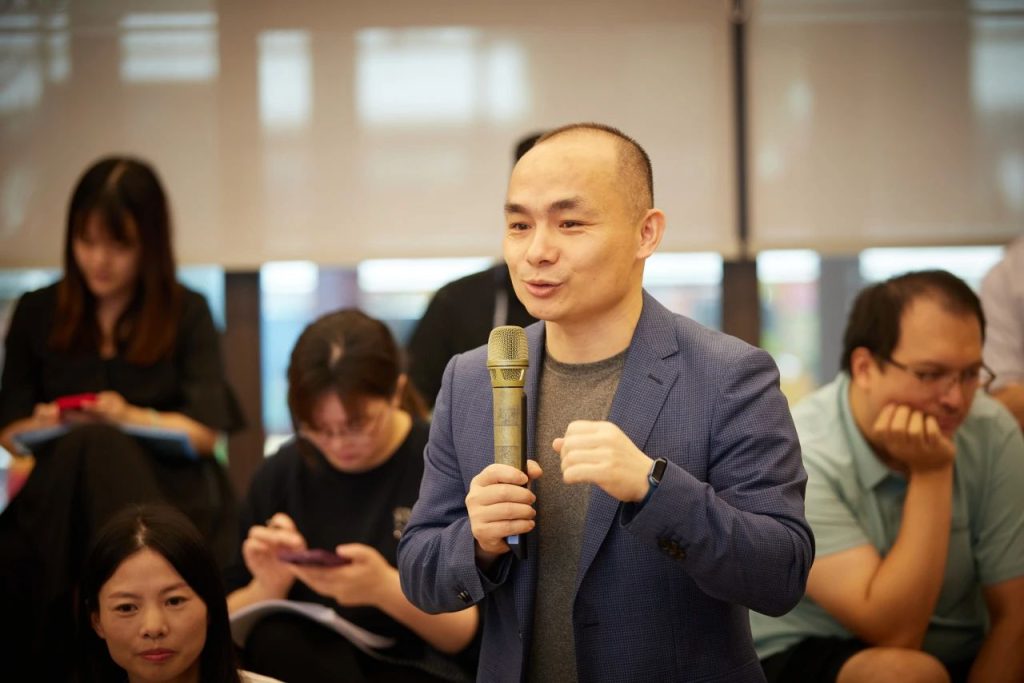
Dr. Du, as the nutrition guidance expert for Teacher Dong Ming’s “Beautiful ‘Food’ Light” project, approached the issue of nutrition in Chinese students’ lunch menus from a societal perspective. He recognized the value and significance of this lesson for students’ healthy living. He applauded the children for using real data analysis to guide their dietary choices in their daily lives, and he hoped that more students could gain awareness of health and the ability to promote it through their learning.
Expert Overall Evaluation, Guiding Direction
Mr. Zhu Lianyun, former Director of the Research Center at the Teacher Continuing Education Institute in Qingpu District, Shanghai
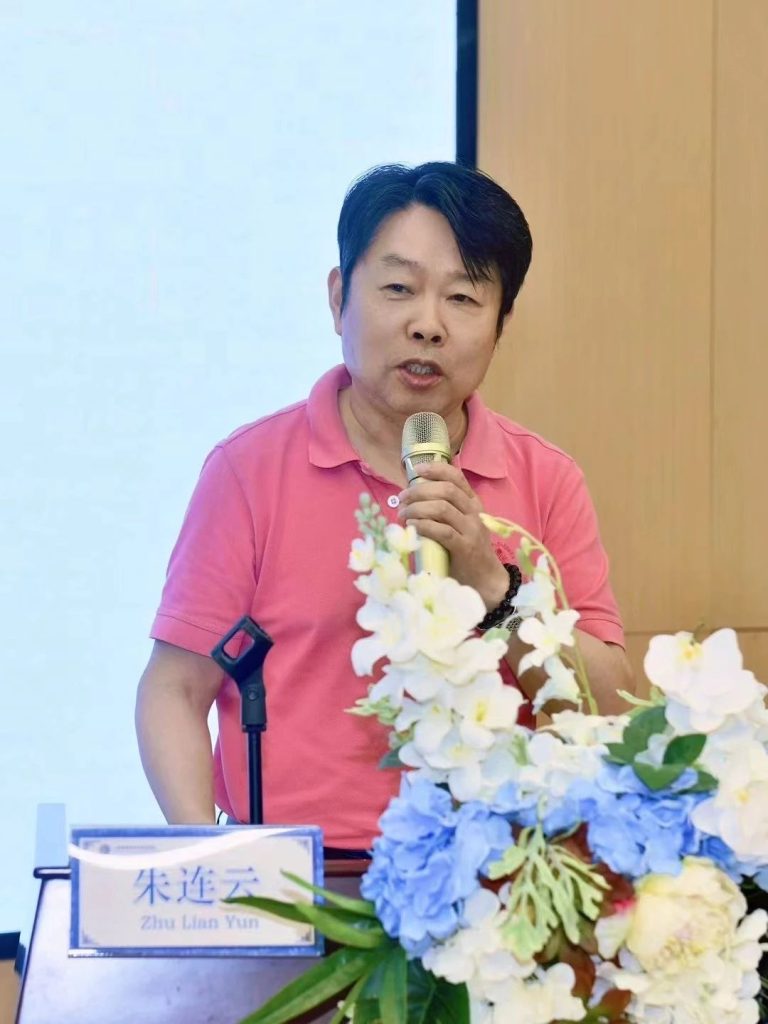
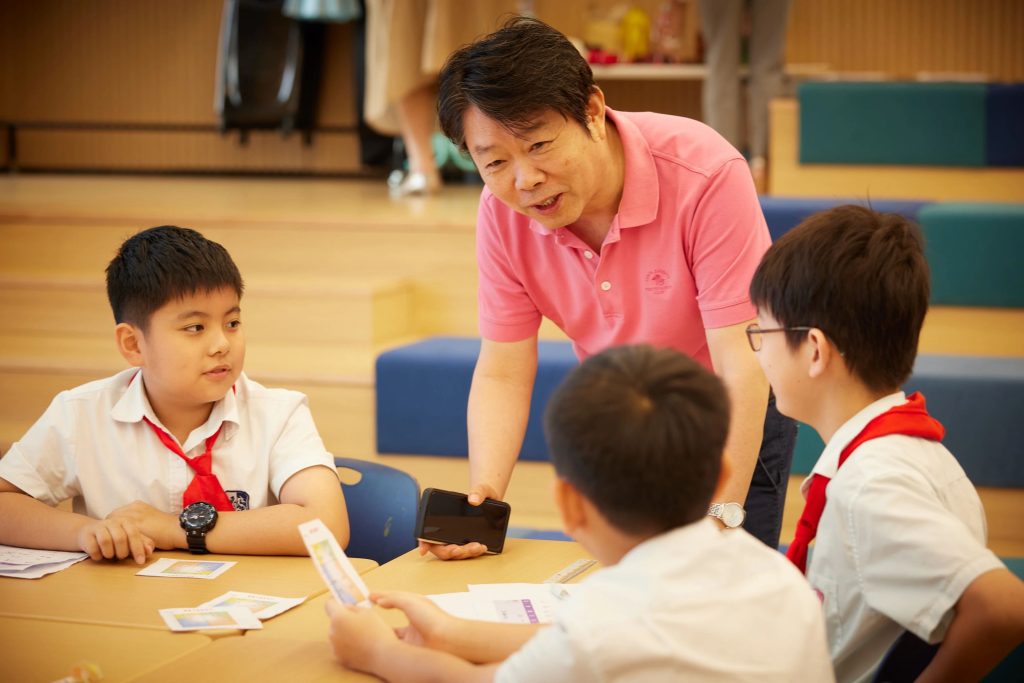
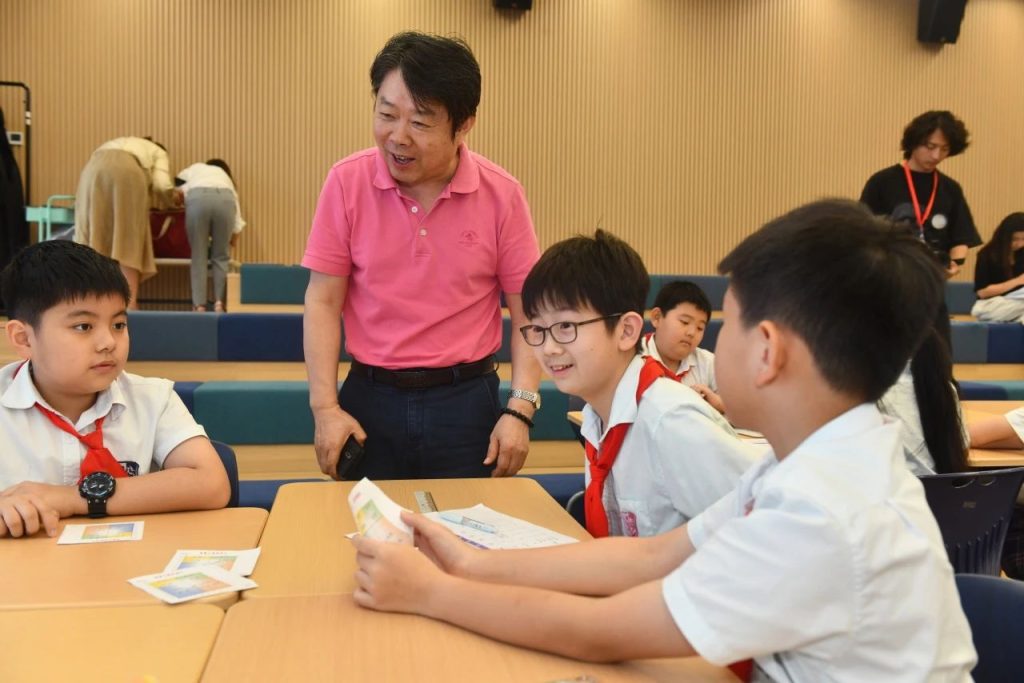
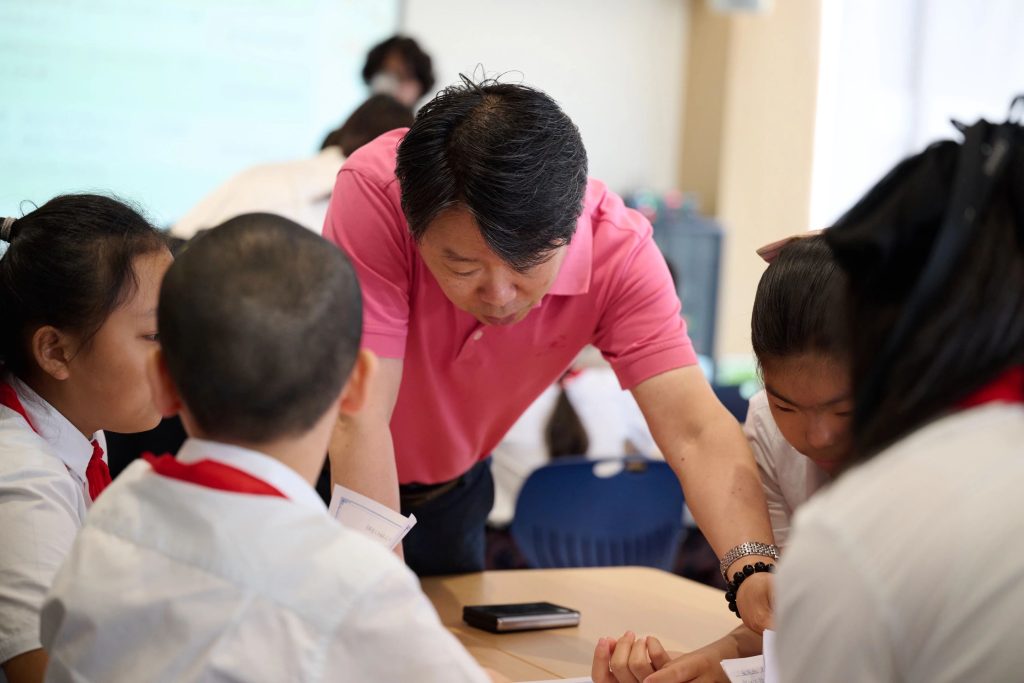
Mr. Zhu Lianyun, as the guiding figure for PBL at our school, and as a witness to our school’s promotion of PBL, highly praised this event. Firstly, the event was described as ‘outstanding,’ with ‘positive’ presentations, ‘lively’ classrooms, and a ‘harmonious’ atmosphere, achieving synergy in five aspects: moral education, teaching, teachers, research, and management. Secondly, the content was ‘surprising.’ PBL broke through the barriers of coherence between subjects and the obstacles in the development of diverse teachers. Thirdly, the ‘inspiration’ was continuous: a single project can trigger a comprehensive transformation of the school, and PBL disrupts the fixed growth pattern of early-career teachers, leading to explosive growth among educators. Finally, Mr. Zhu also provided two suggestions. He reminded us to stay true to our original intentions; project-based learning should not be designed solely for the sake of projects but should genuinely focus on students’ growth needs. We should start from the base of teachers’ professional growth and constantly assess whether in-depth learning is genuinely occurring among students in their foundational stages.
Leadership Speech – Never Forget the Original Intention
